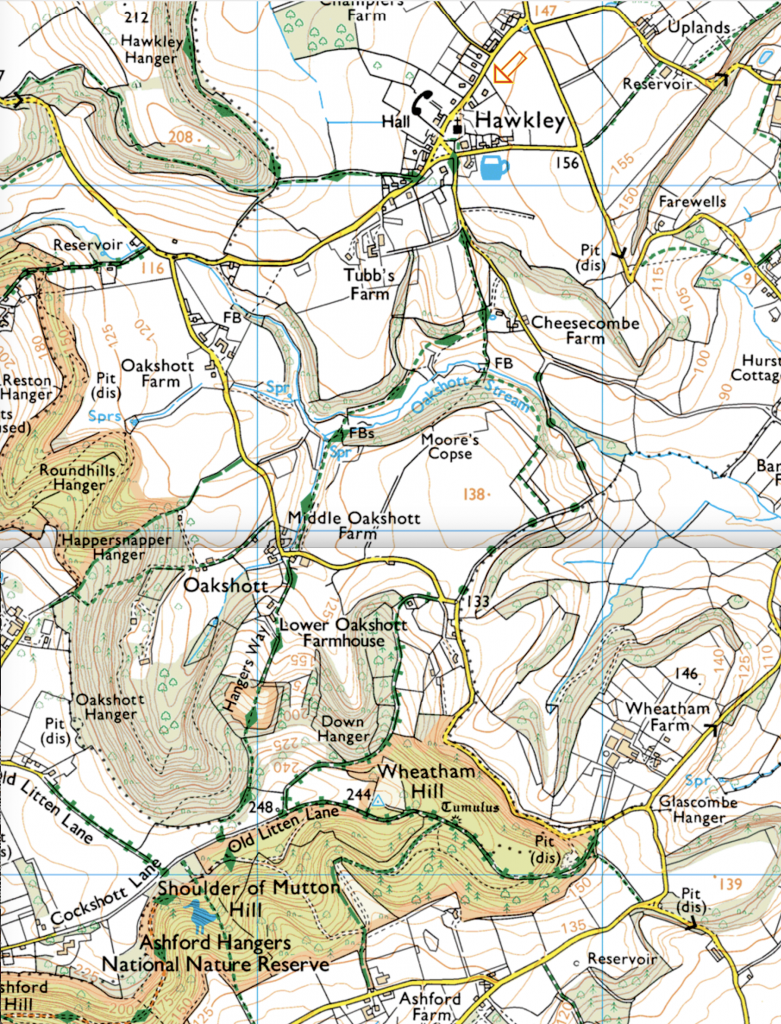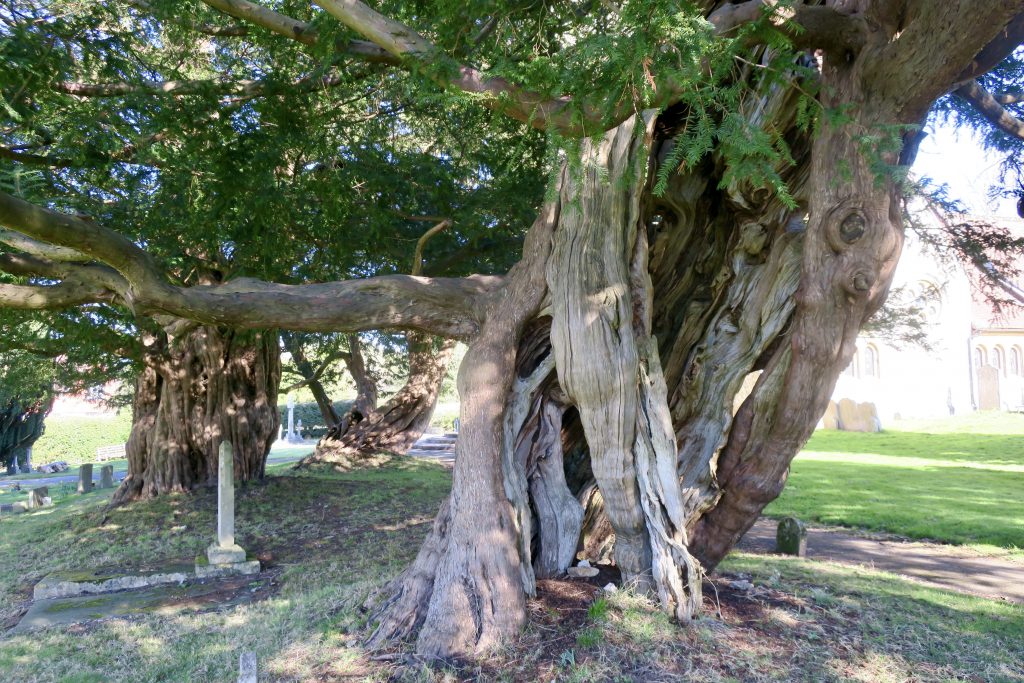
These ancient yew trees are in the churchyard at Hawkley in Hampshire. I’d discovered them via the Ancient Tree Inventory. We’d come down from London to meet Howard Phipps who was coming up from Salisbury with a windowful of wood engravings in the back of his car. And surprisingly we got there first, so I went looking for trees.
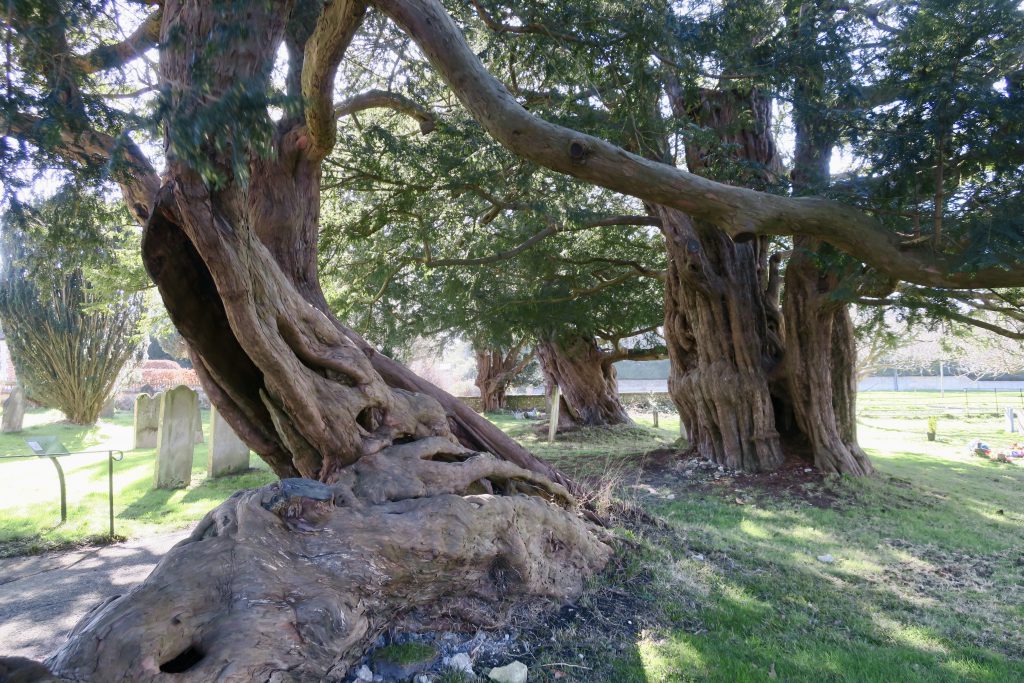
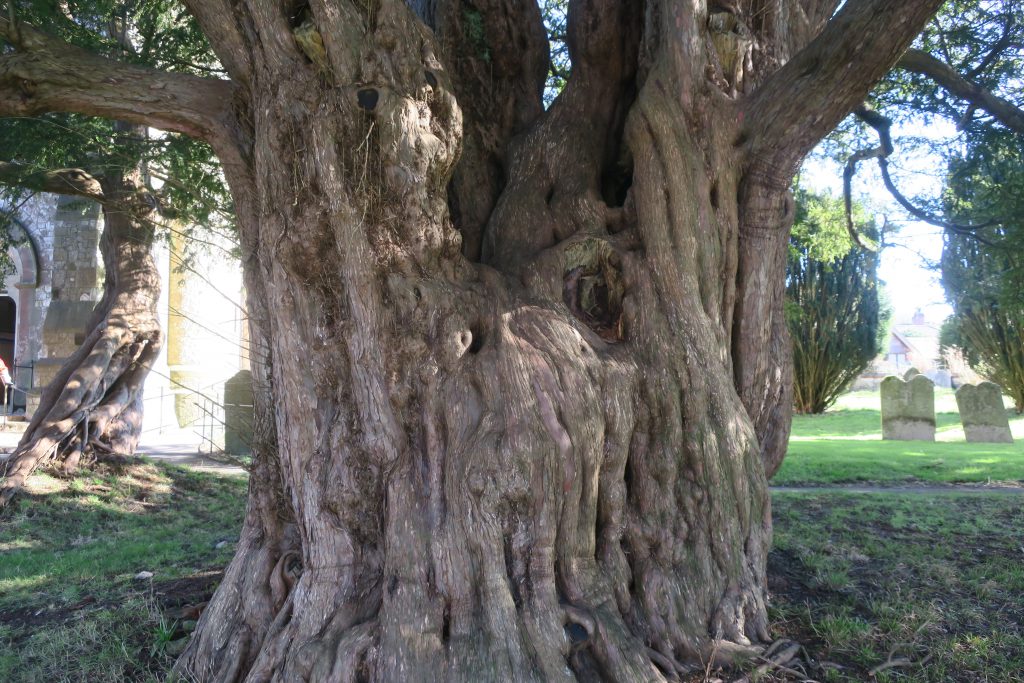
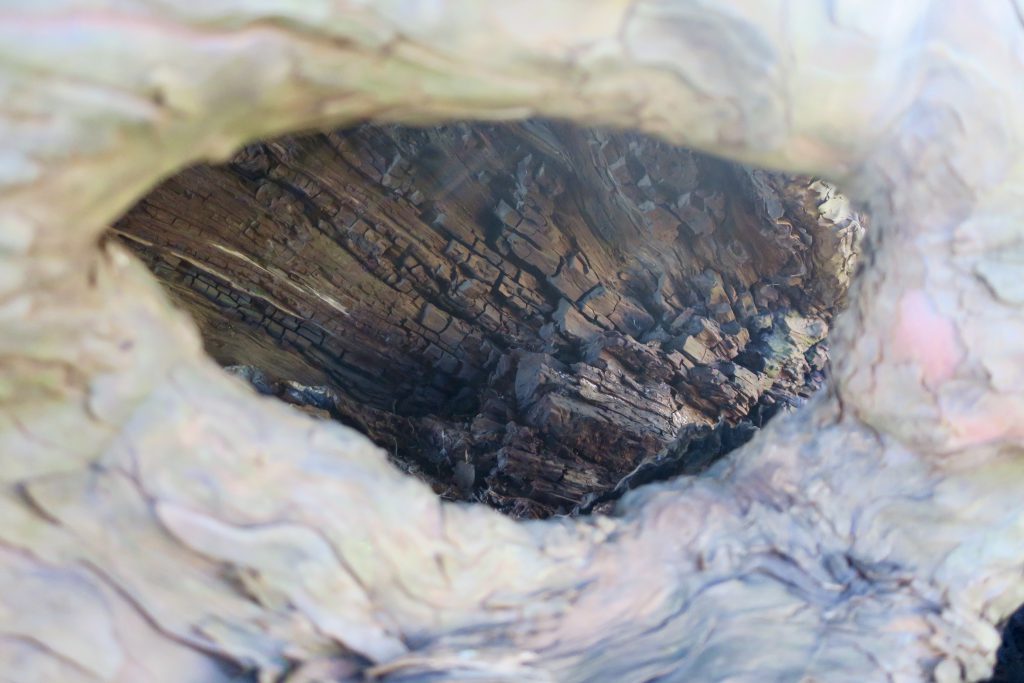
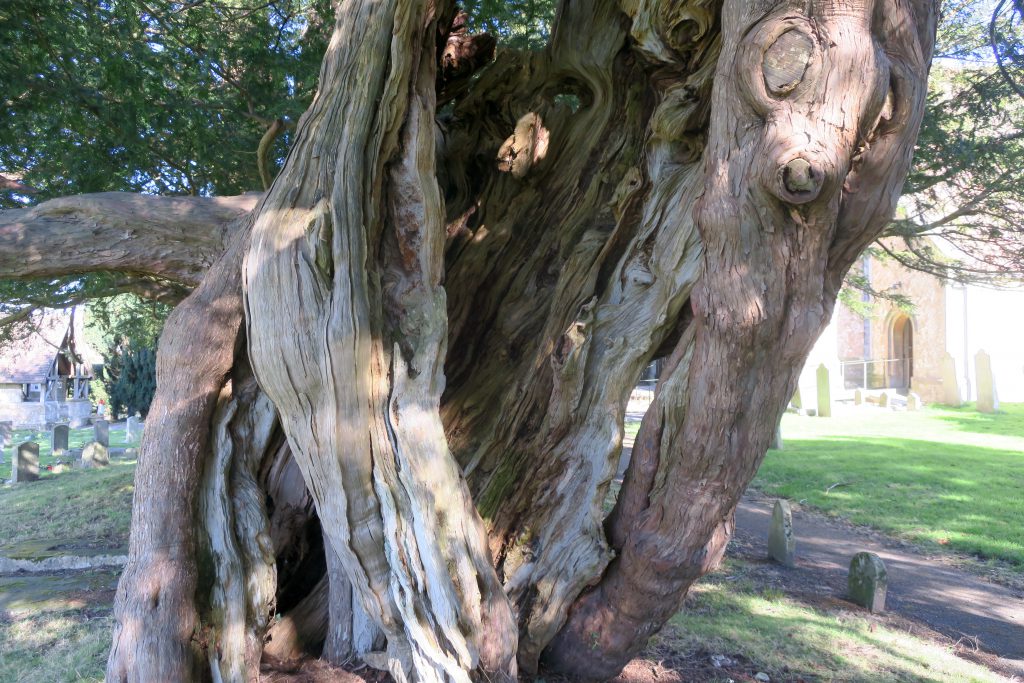
Howard arrived ten minutes later with a beaming smile as bright as the sunshine, and with the Collected Poems of Edward Thomas in his pocket.
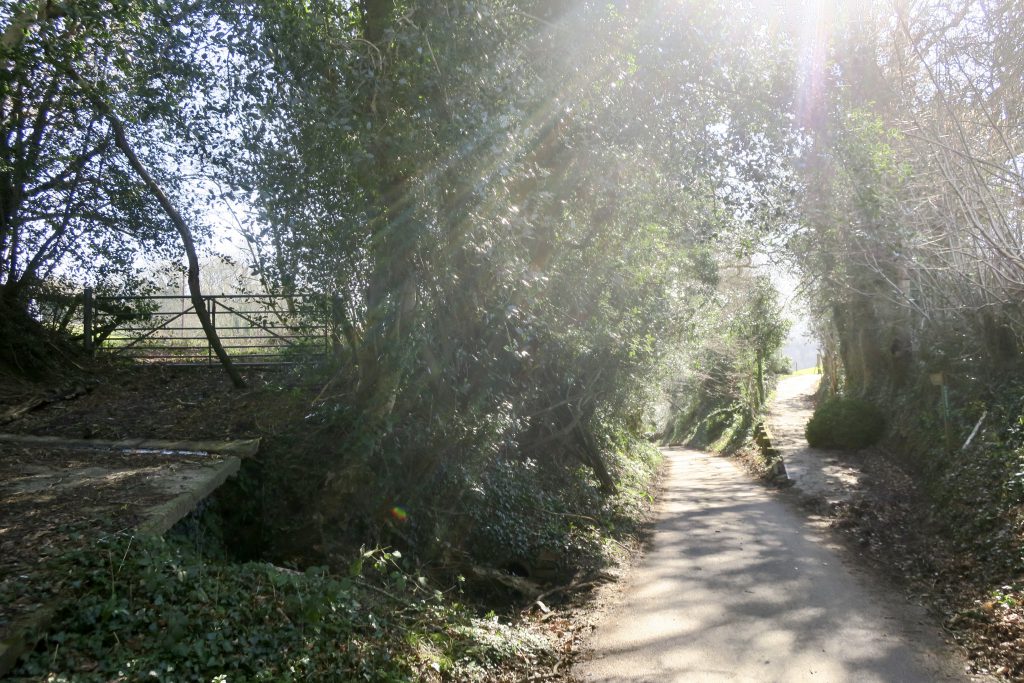
The Path
Running along a bank, a parapet
That saves from the precipitous wood below
The level road, there is a path. It serves
Children for looking down the long smooth steep,
Between the legs of beech and yew, to where
A fallen tree checks the sight: while men and women
Content themselves with the road and what they see
Over the bank, and what the children tell.
The path, winding like silver, trickles on,
Bordered and even invaded by thinnest moss
That tries to cover roots and crumbling chalk
With gold, olive, and emerald, but in vain.
The children wear it. They have flattened the bank
On top, and silvered it between the moss
With the current of their feet, year after year.
But the road is houseless, and leads not to school.
To see a child is rare there, and the eye
Has but the road, the wood that overhangs
And under yawns it, and the path that looks
As if it led on to some legendary
Or fancied place where men have wished to go
And stay; till, sudden, it ends where the wood ends.
Edward Thomas, 1915
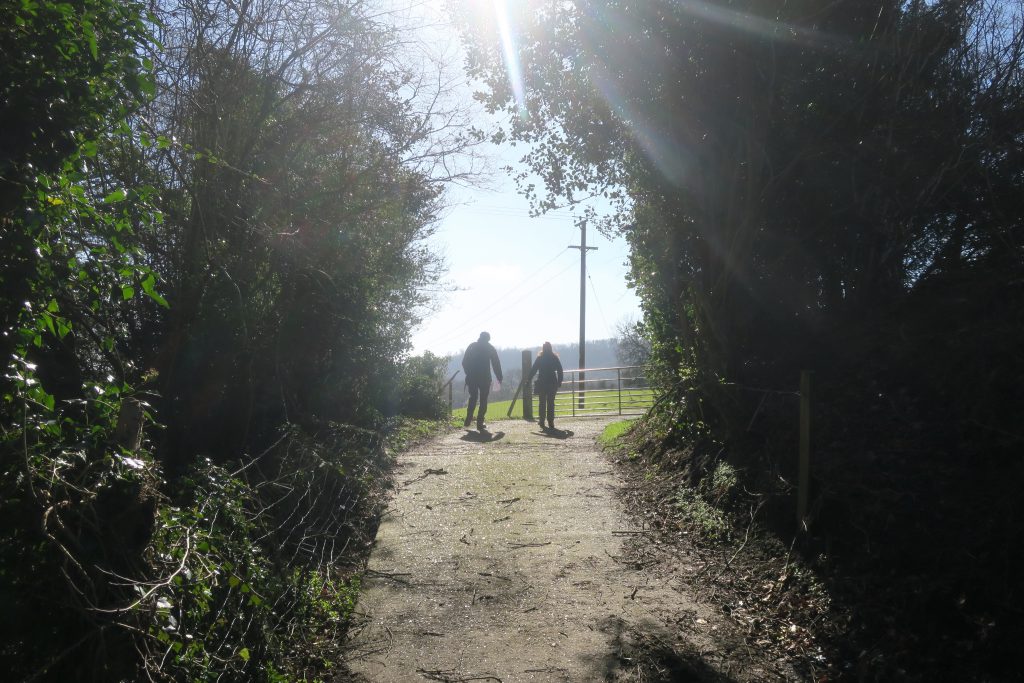
And we set off like overgrown children on a mission to circle the hills and count the trees, to stretch our eyes and our legs and be back in time for tea.
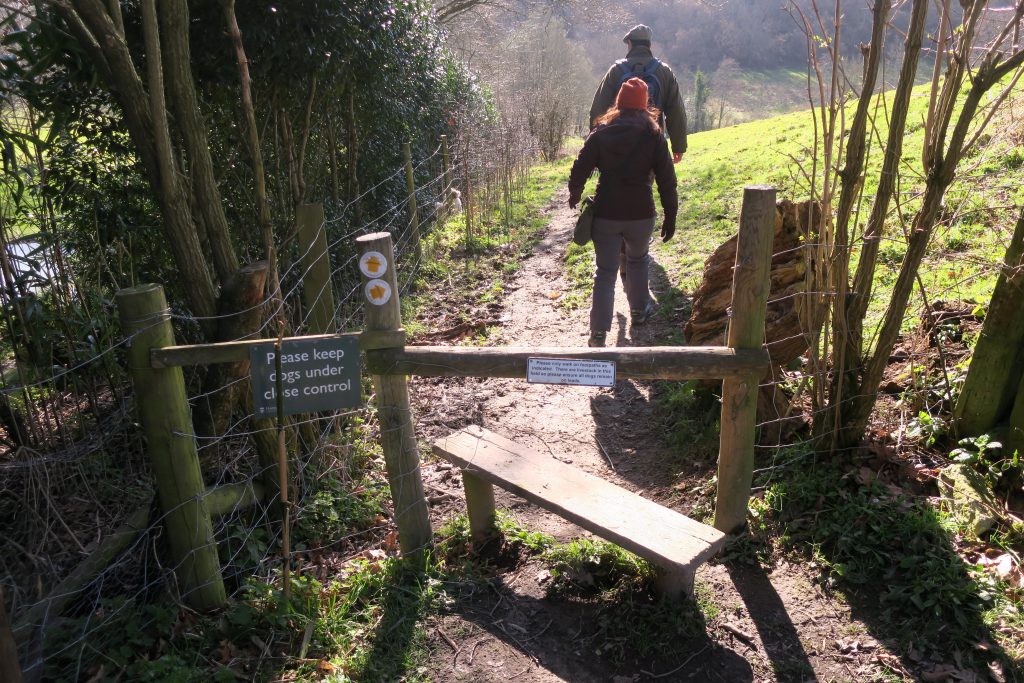
We were attacked at the first hurdle by fearsome dragons, but a sleeping-draught sausage from my knapsack soon quietened them down.
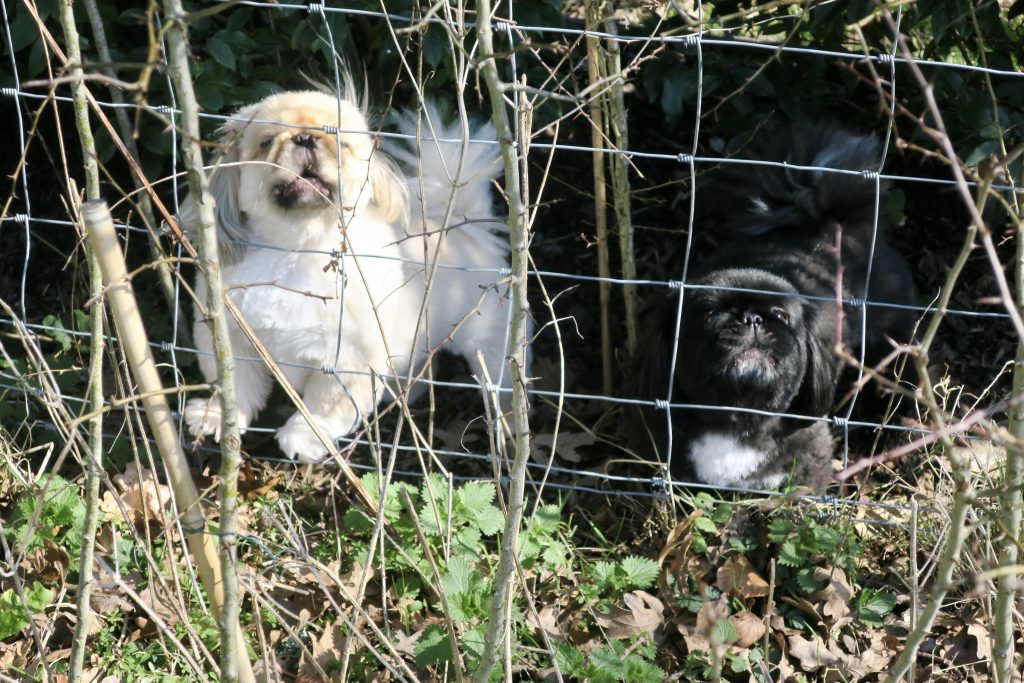
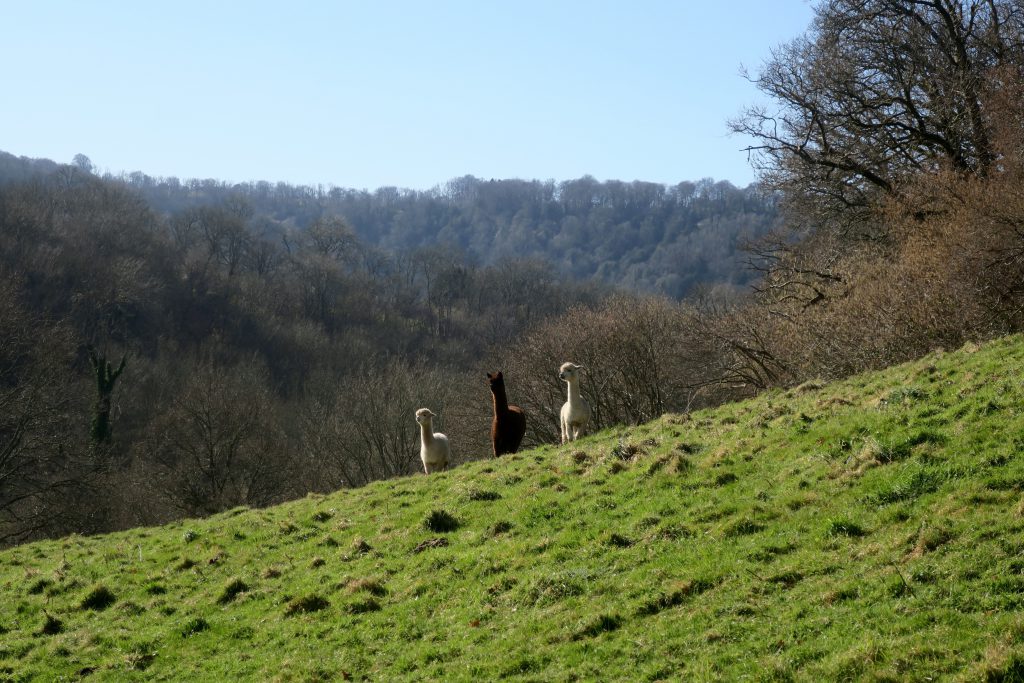
The incident did not go unnoticed.
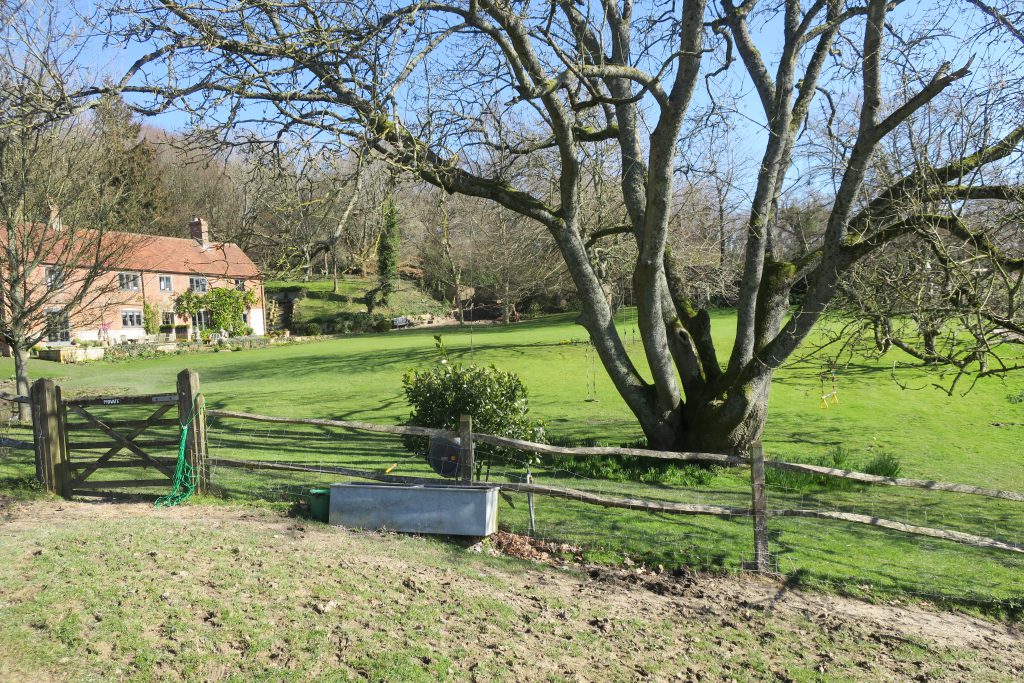
We passed by Cheesecombe Farm where I was tempted by their envious garden of rope-swings. The sign on the gate said Private, but my eyes gained entry and I dreamed flights of fancy.
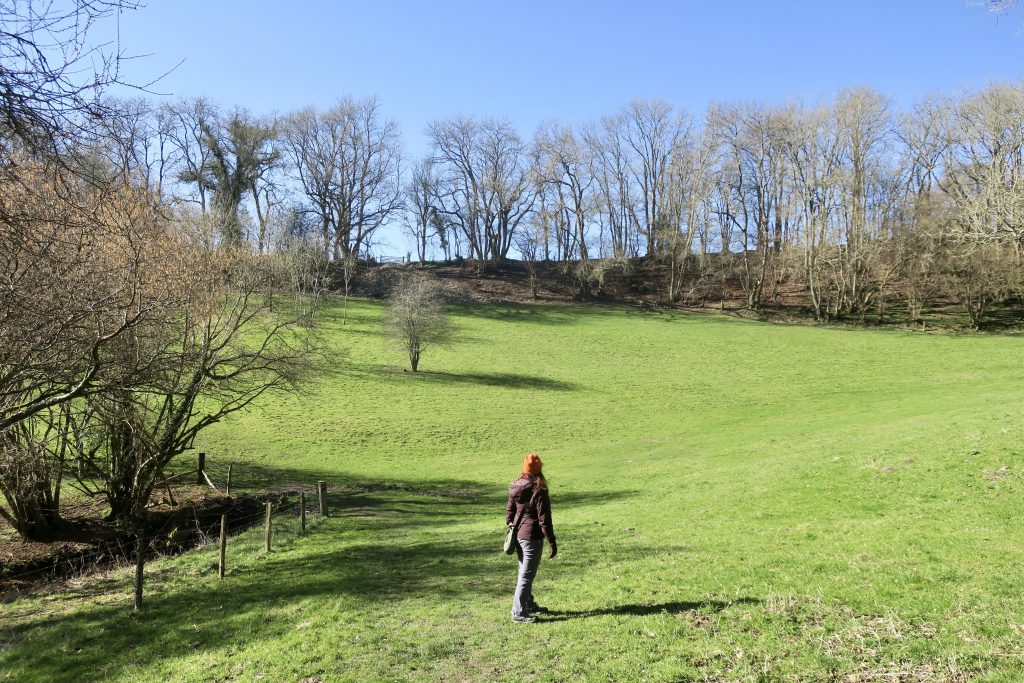
We came over the fields and stepped into a small paradise, a green amphitheatre overlooked by hanging beech trees and a welcome blackbird.
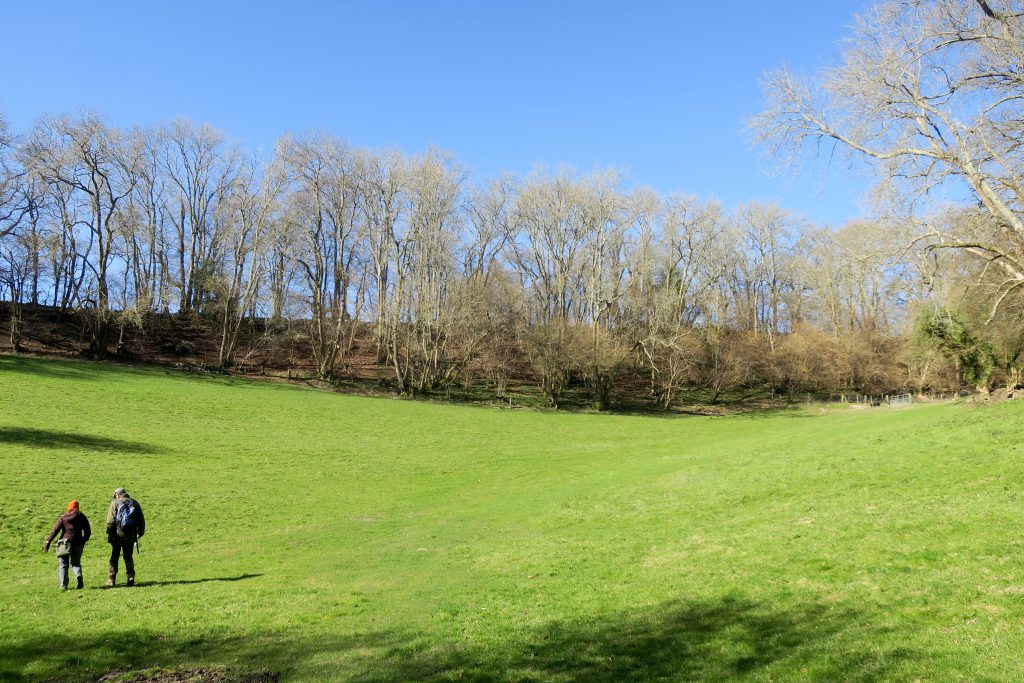
March the 3rd
Here again (she said) is March the third
And twelve hours singing for the bird
‘Twixt dawn and dusk, from half past six
To half past six, never unheard.
‘Tis Sunday, and the church-bells end
With the birds’ songs. I think they blend
Better than in the same fair days
That shall pronounce the Winter’s end.
Do men mark, and none dares say,
How it may shift and long delay,
Somewhere before the first of Spring,
But never fails, this singing day!
When it falls on Sunday, bells
Are a wild natural voice that dwells
On hillsides; but the birds’ songs have
The holiness gone from the bells.
This day unpromised is more dear
Than all the named days of the year
When seasonable sweets come in,
Since now we know how lucky we are.
Edward Thomas, 1915
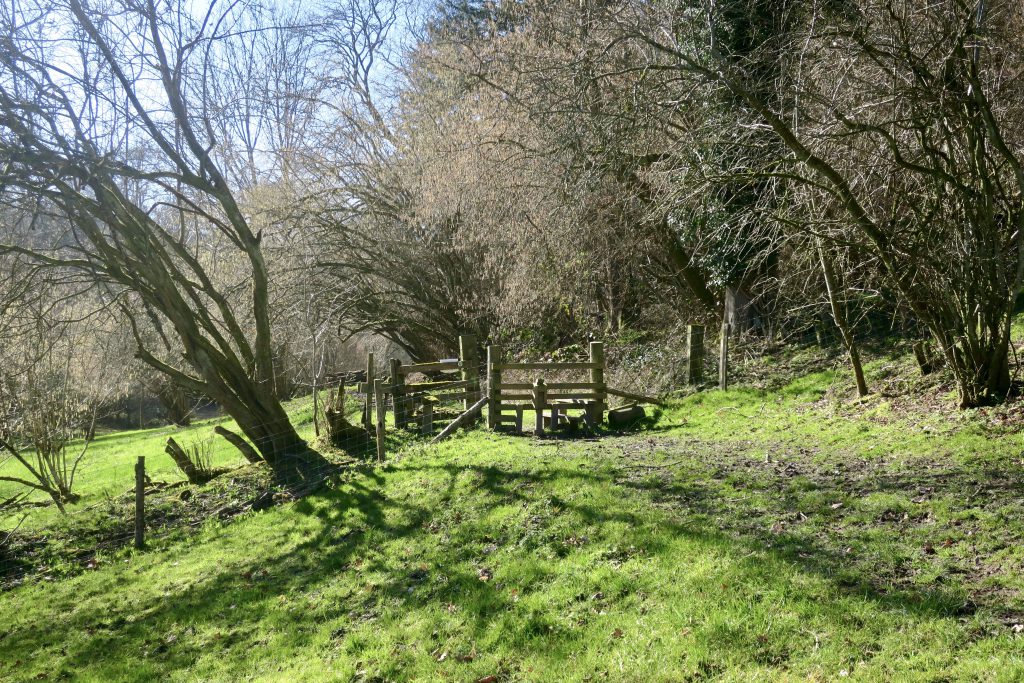
There’s a new stile in the corner of the field, beside an old stile, kept for its beauty and its moss, but replaced because in danger of collapse. I recalled a time 60 years ago and six boys playing out, on our way to the ruined house down by the river. We climbed a stepped wall in the farmyard, a sheep stile, but the stones were loose and collapsed under our feet. We ran off guiltily into the woods with the farmer’s shouts ringing in our ears.
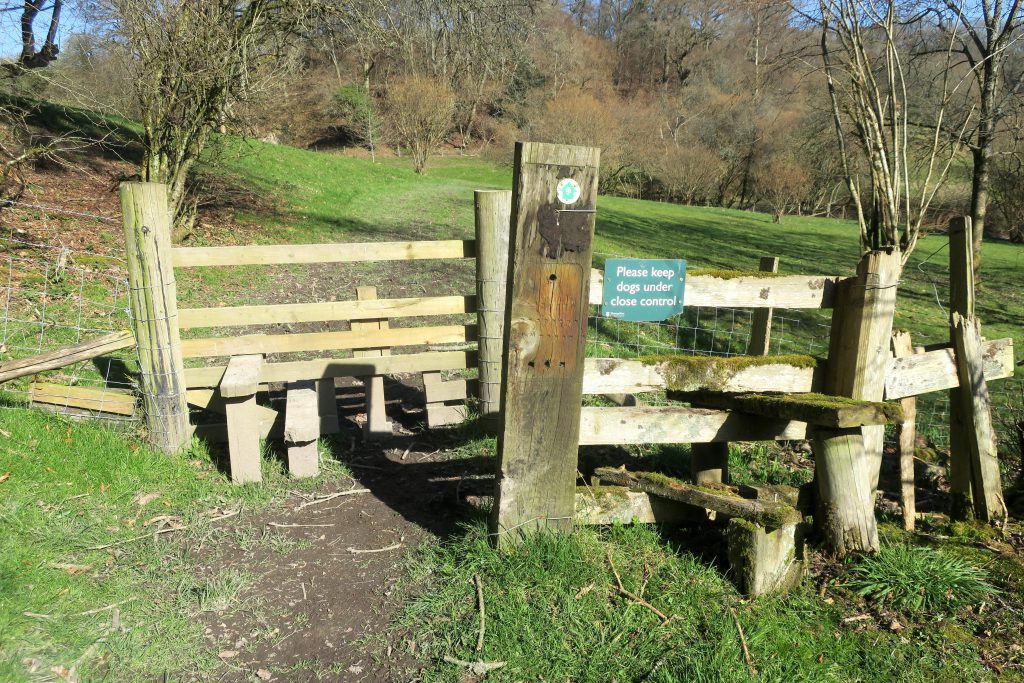
NB: Both stiles, young and old, have dog stiles incorporated alongside. Lift the post and let them come-by. A nice piece of vernacular carpentry.
“I love those rustic and picturesque stiles, opening their pleasant escapes from frequented places, and dusty highways, into the solitude of nature.”
William Hone’s Every Day Book, 1825
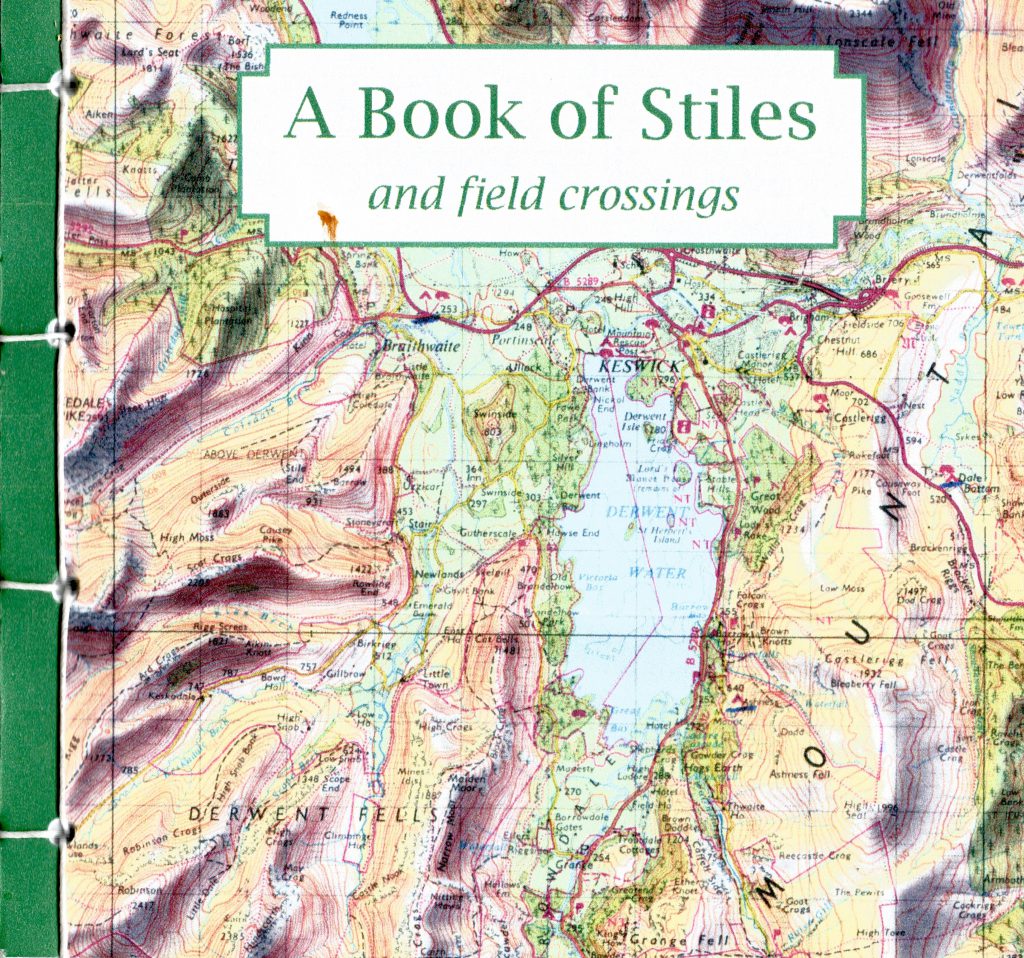
The line above is quoted from A Book of Stiles, a most welcome handbook that arrived anonymously by post. Thank you! You’ve got me looking at stiles with renewed attention.
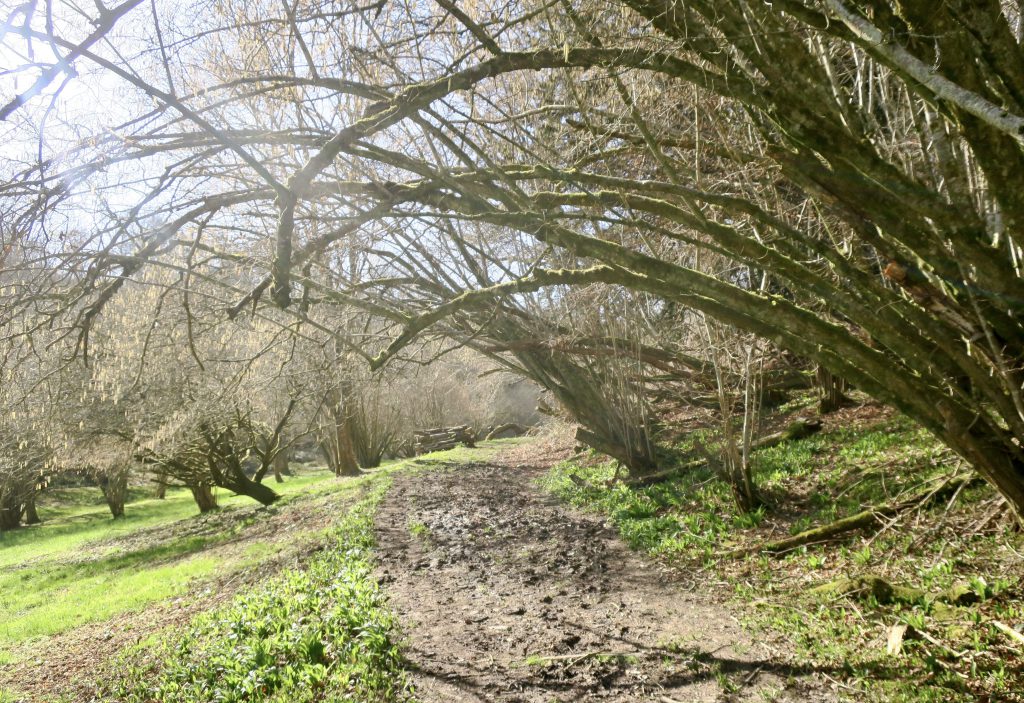
The path beyond was well trodden.
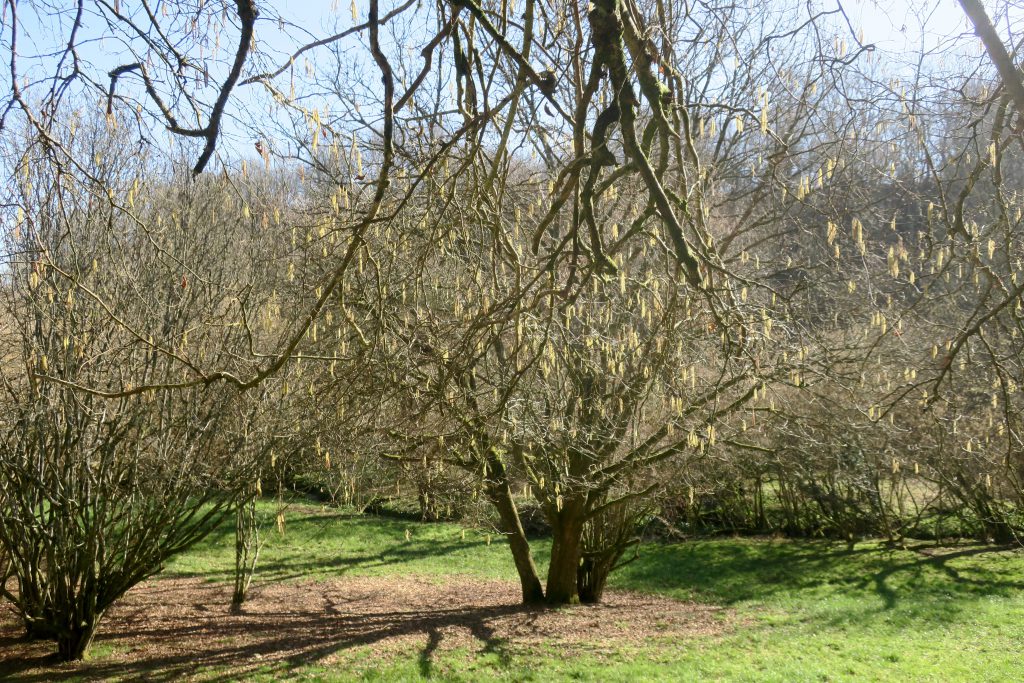
Catkins caught the light and glowed like fairies.
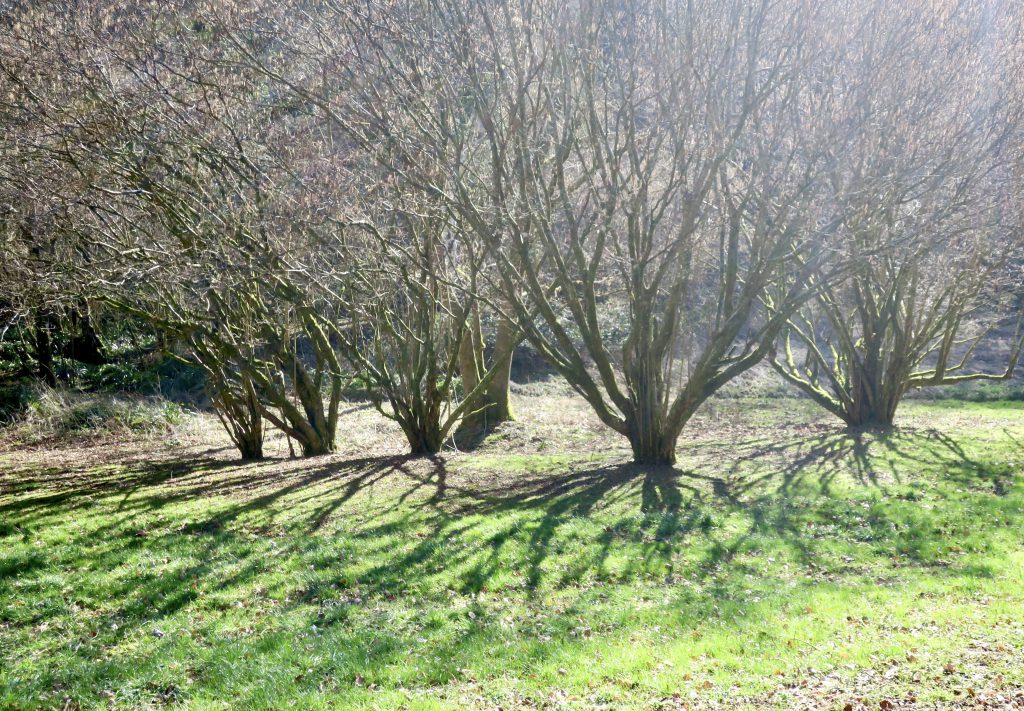
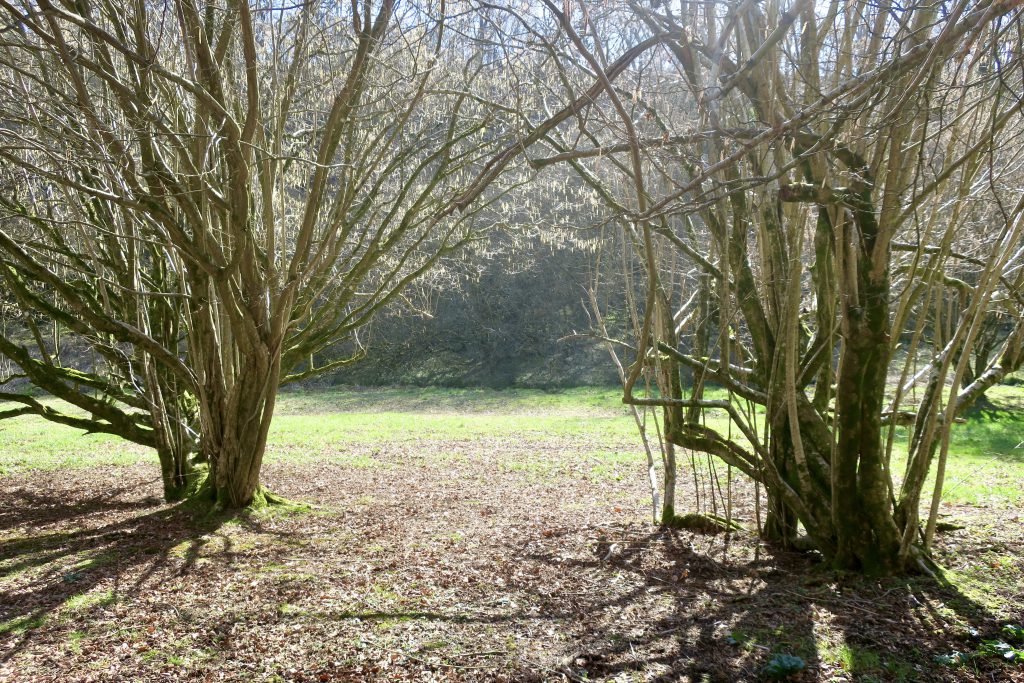
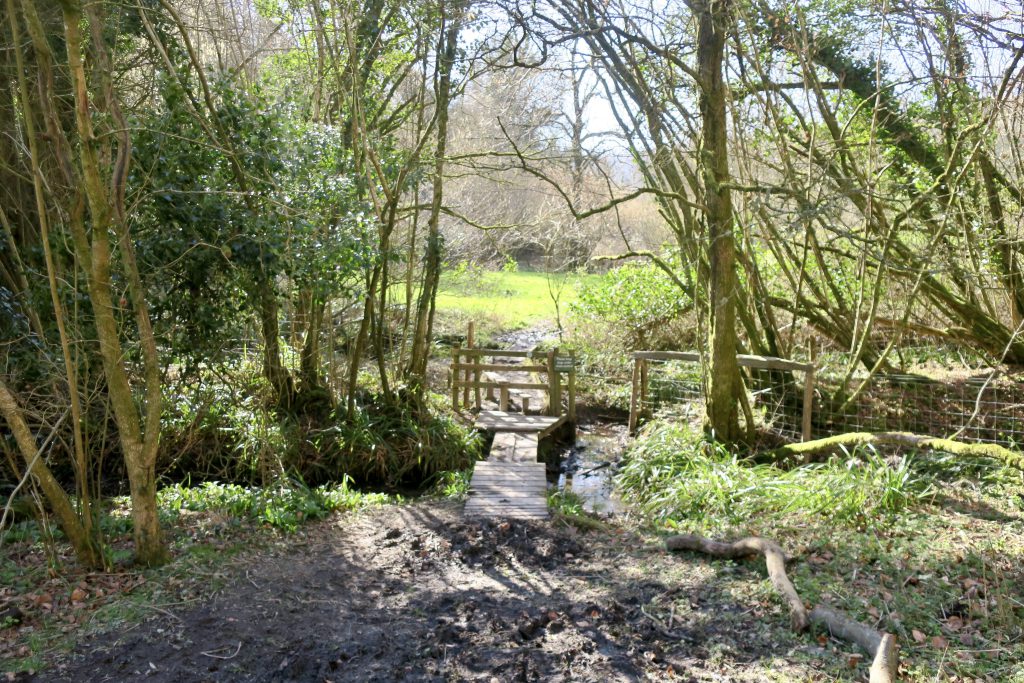
We crossed Oakshott Stream by the footbridge and along a slippery path.
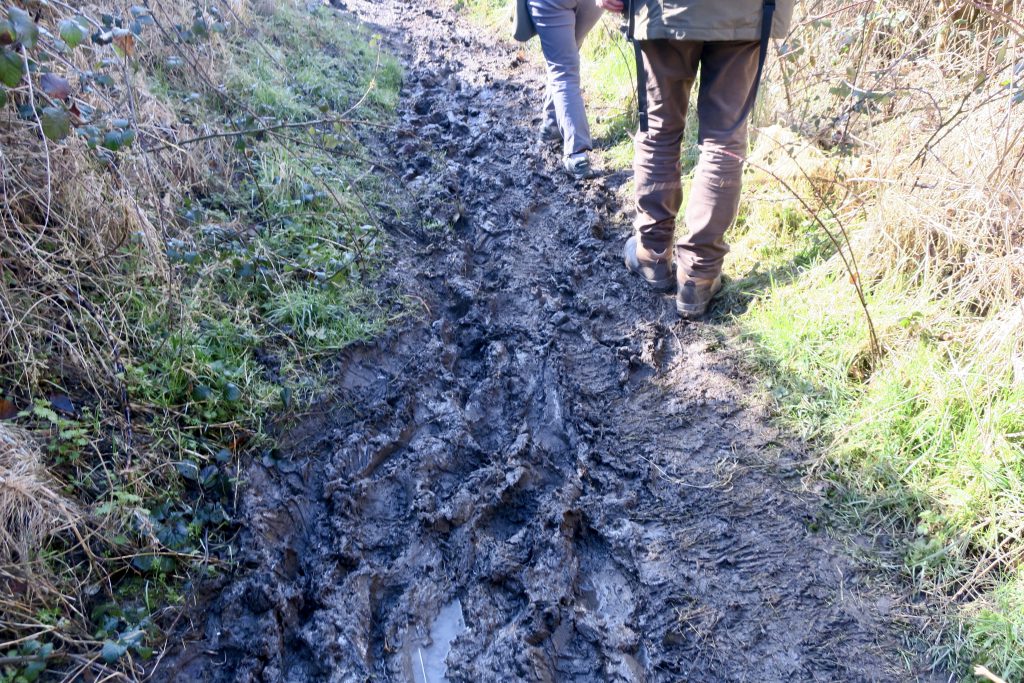
We met a family coming the other way, a clean father and two very muddy children. I asked if the path got worse up ahead. “Oh yes!” said the father, and his daughter asked, “Uh oh! Are they going up the hill we just came down?” I imagined she and her brother had come sliding most of the way.
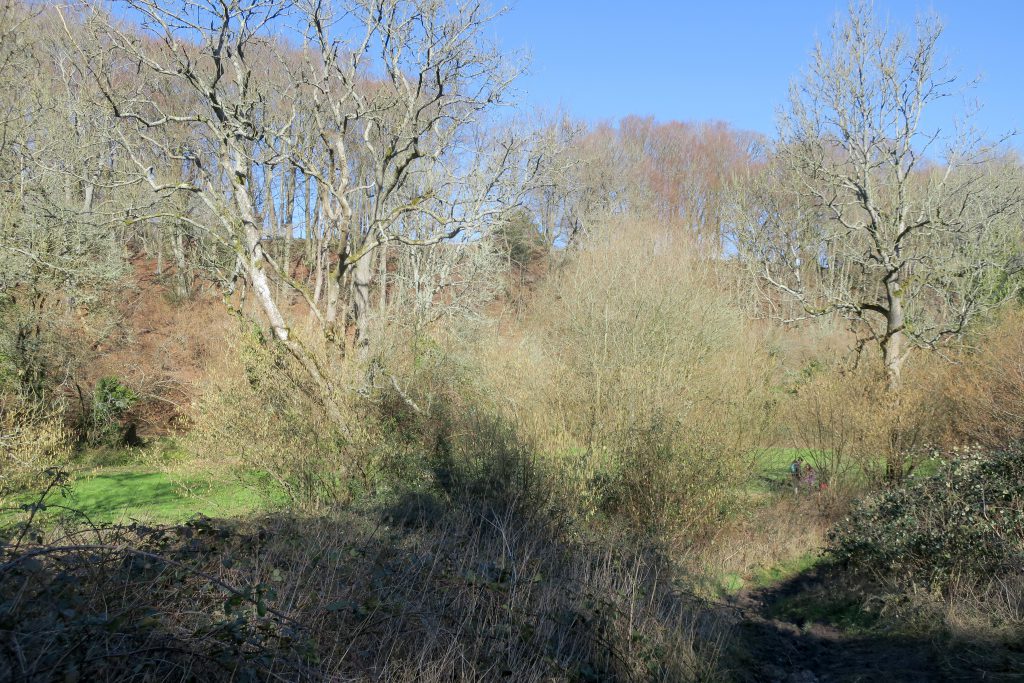
We had been warned!
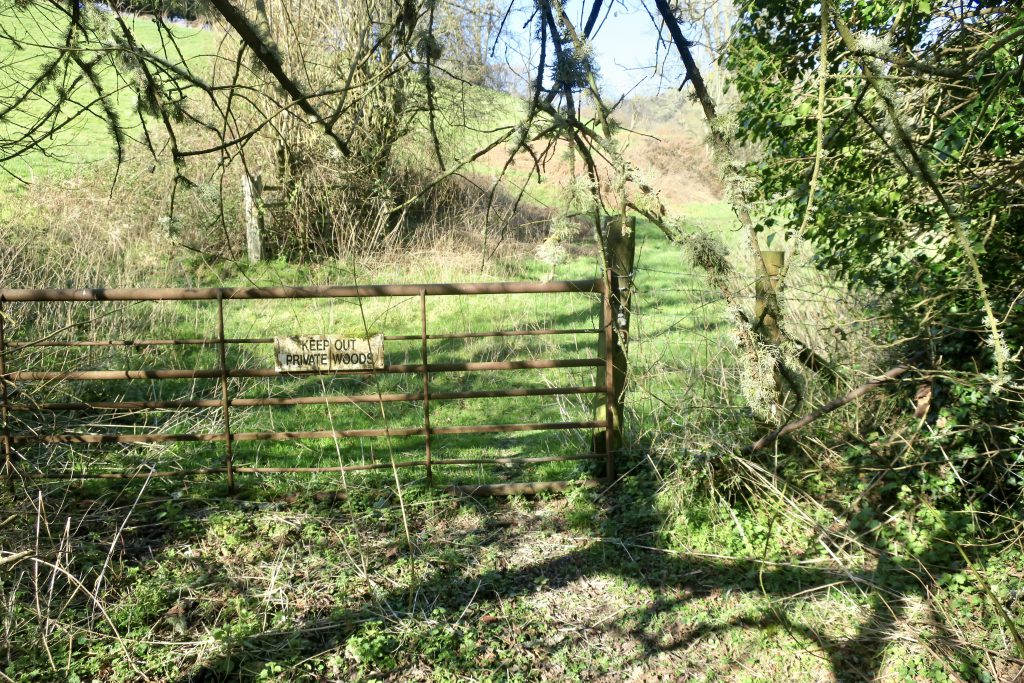
The Hollow Wood
Out in the sun the goldfinch flits
Along the thistle-tops, flits and twits
Above the hollow wood
Where birds swim like fish –
Fish that laugh and shriek –
To and fro, far below
In the pale hollow wood.
Lichen, ivy, and moss
Keep evergreen the trees
That stand half-flayed and dying,
And the dead trees on their knees
In dog’s-mercury, ivy, and moss:
And the bright twit of the goldfinch drops
Down there as he flits on thistle-tops.
Edward Thomas, 1914
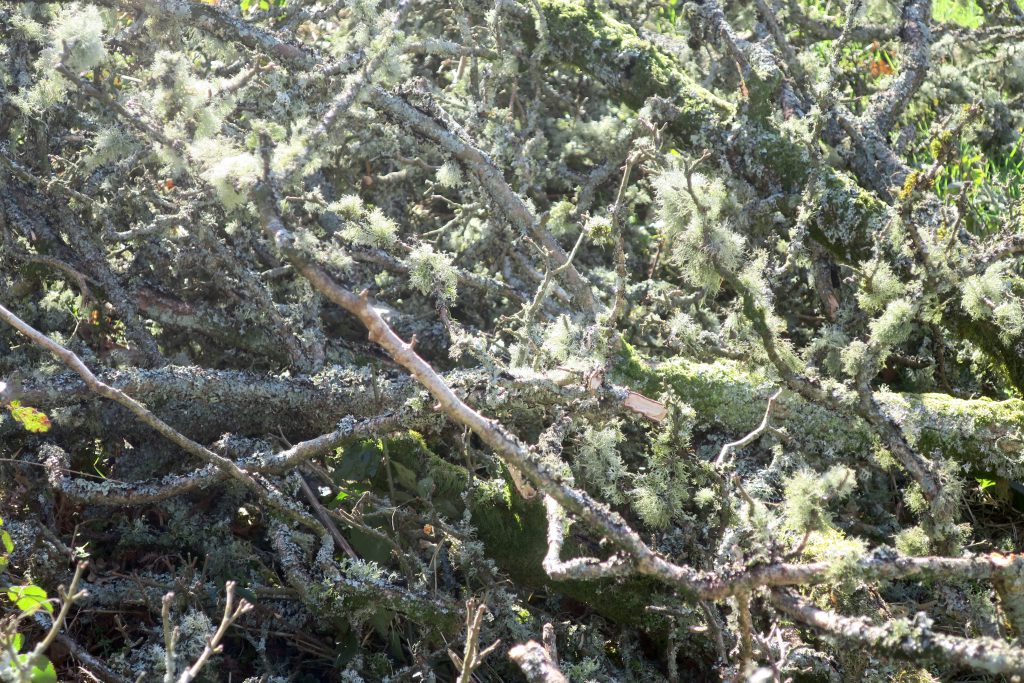
Fallen branches wrapped in lichen.
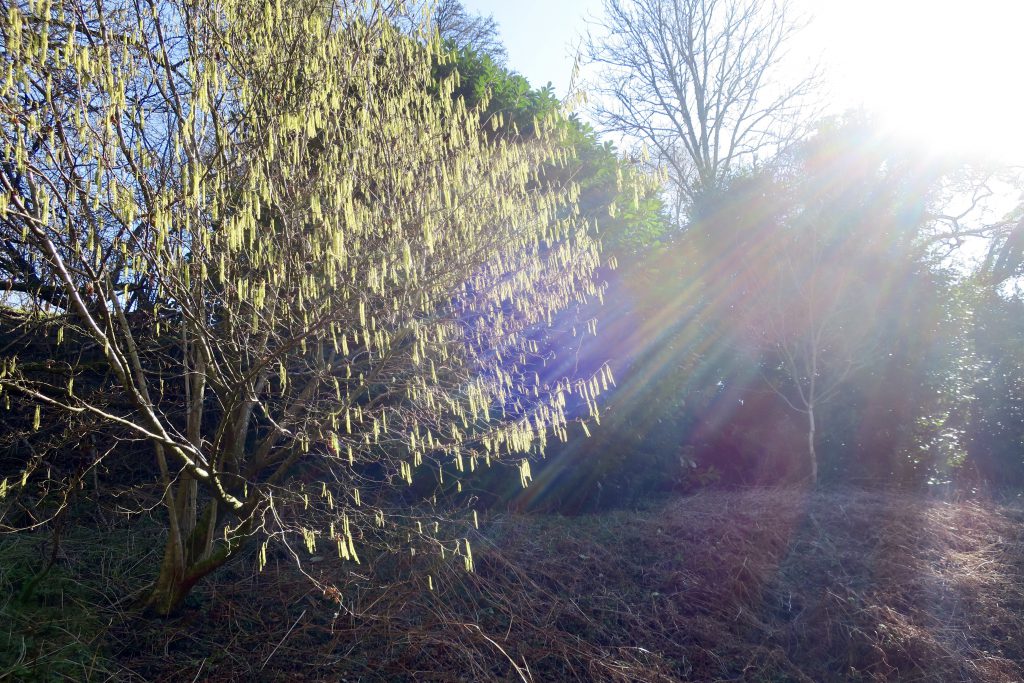
Dazzled willow caught in catkin light.
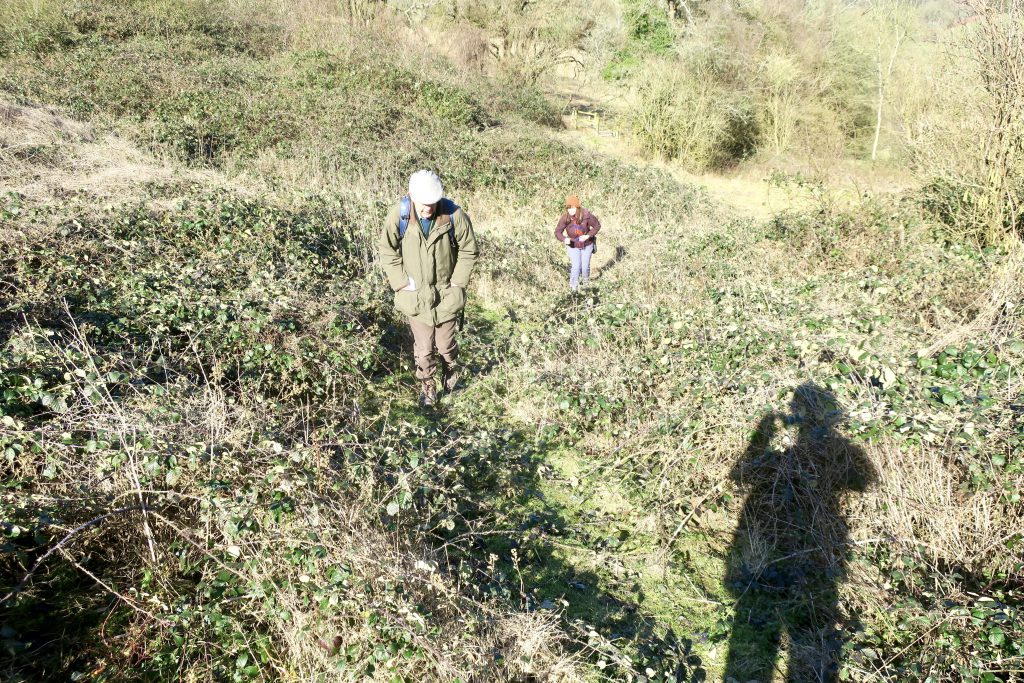
We came off the path to zig-zag scramble through blackthorn and bramble to avoid a precipitous mudslide.
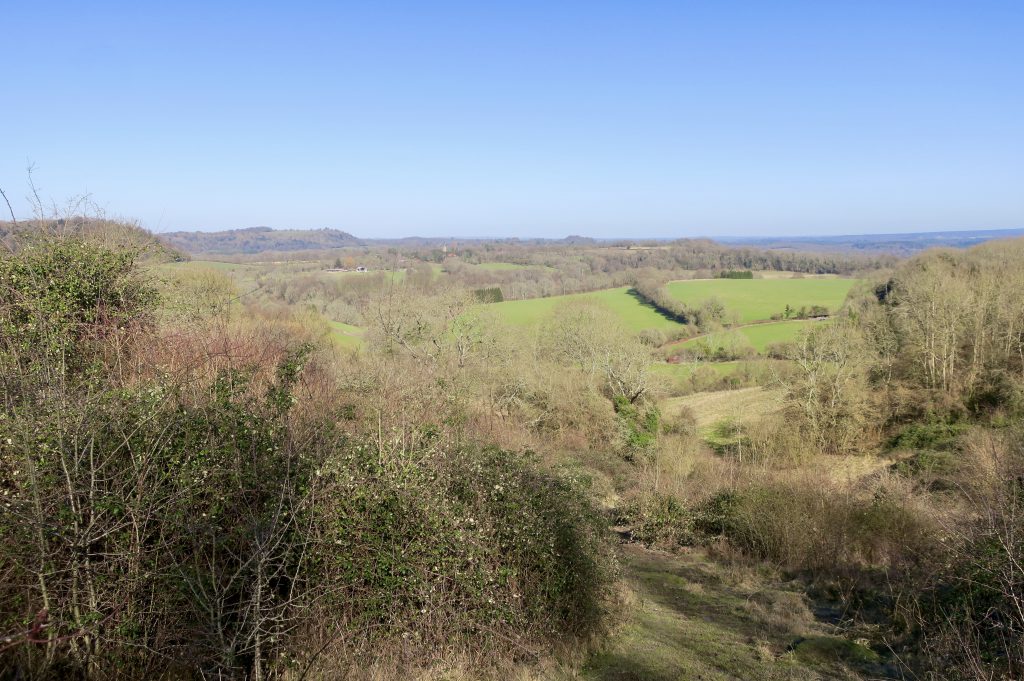
From the top we could just make out the distinctive Rhenish helm spire of the Church of St Peter & St Paul at Hawkley where we’d started from.
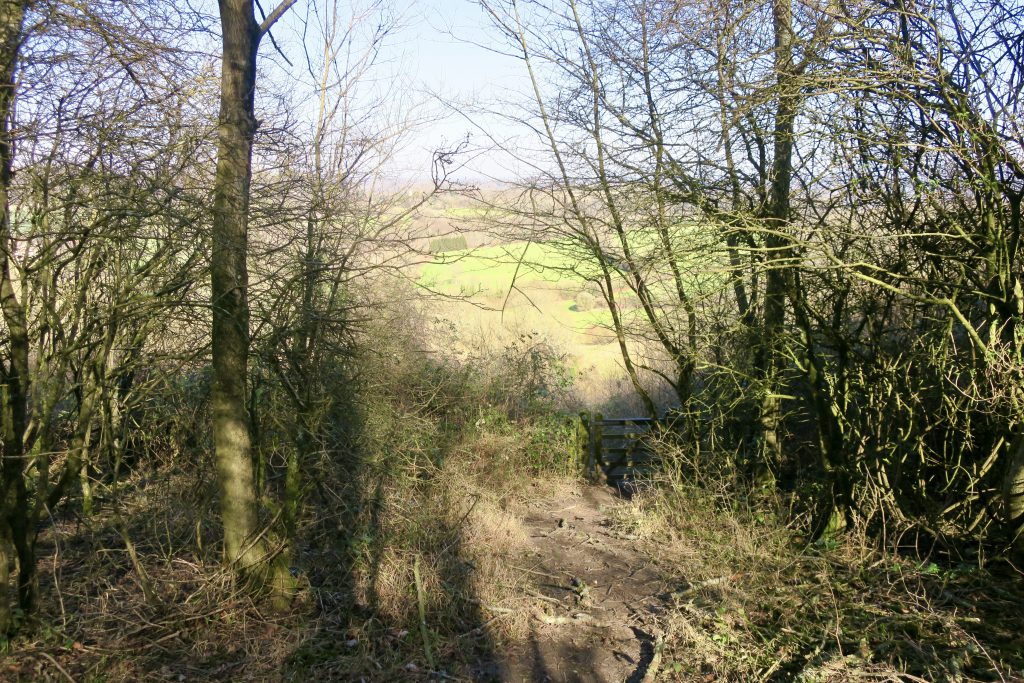
And then into the woods of Oakshott Hanger.
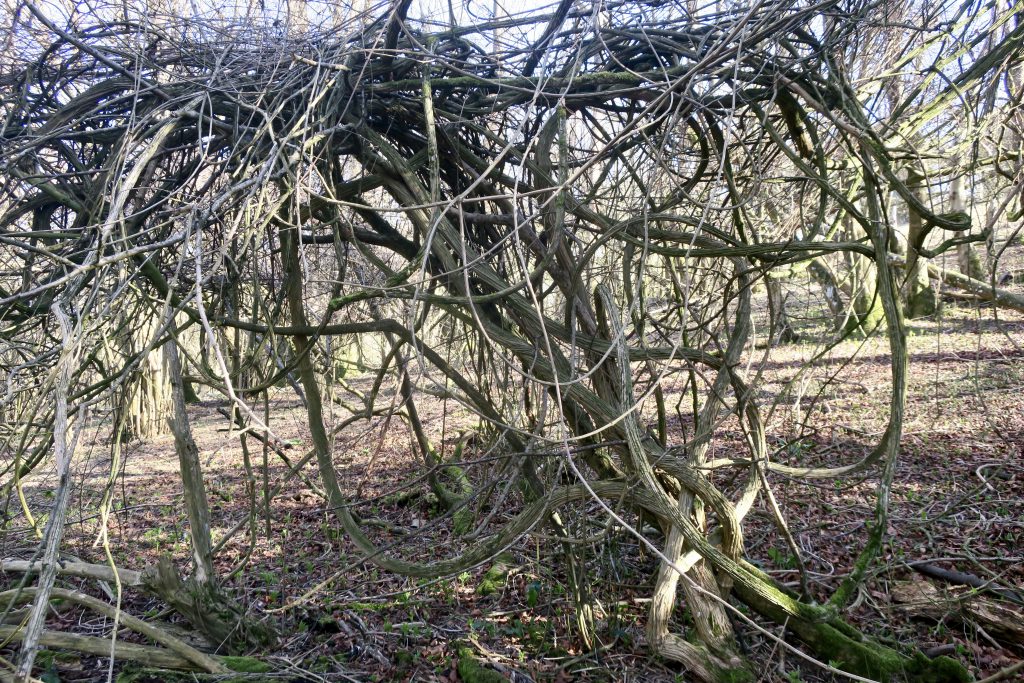
A slow-grown tanglewood.
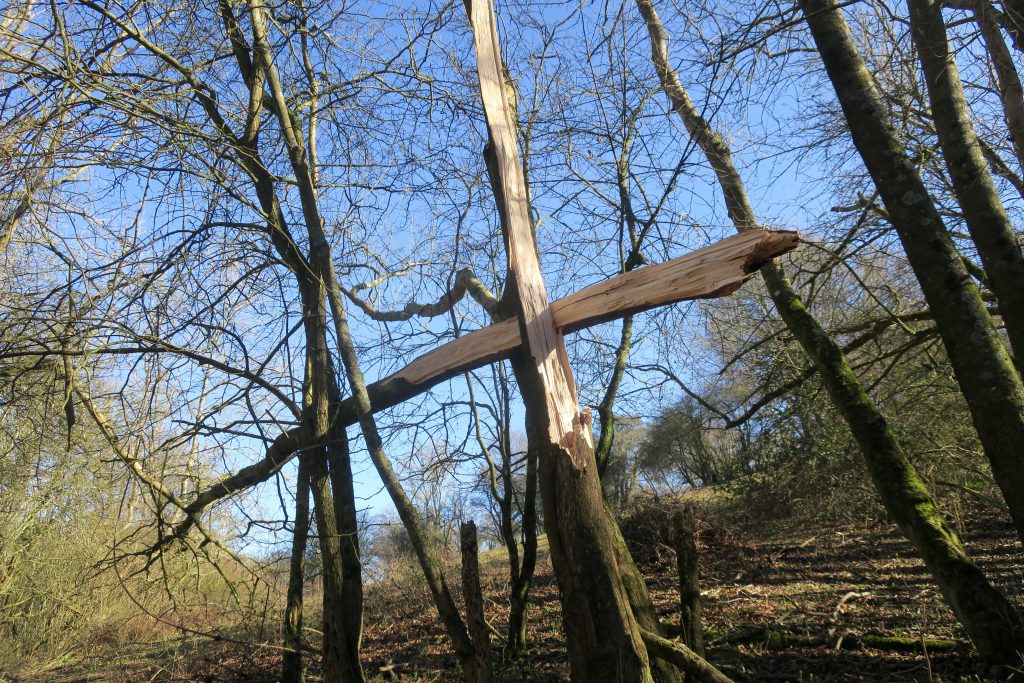
A quick Sunday cross two days after Storm Eunice.
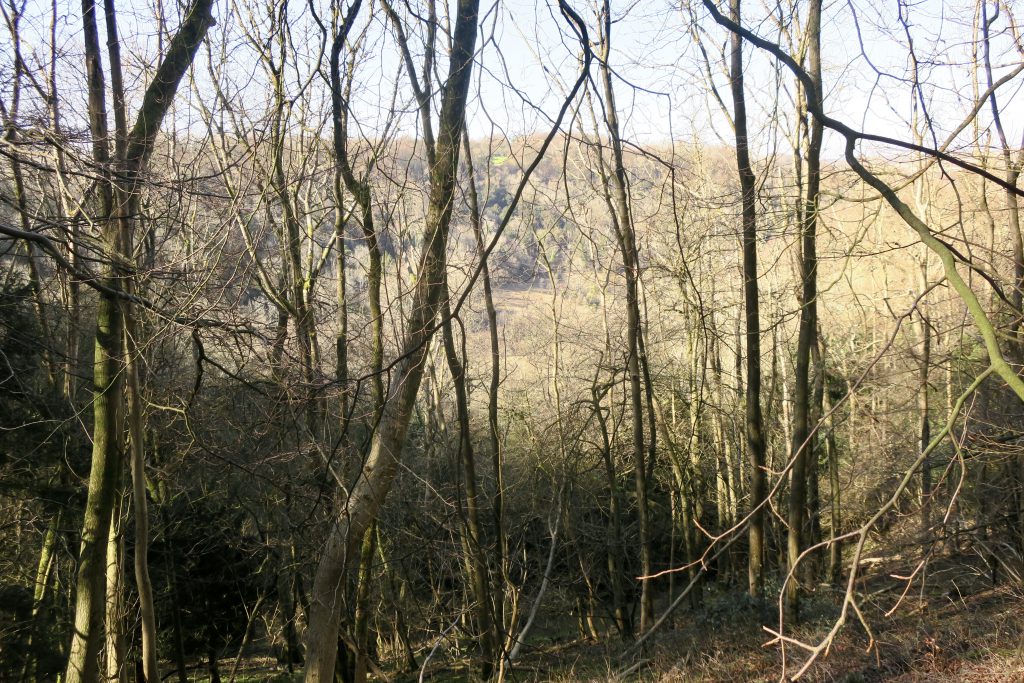
As I stood on the edge of the hanger looking through the trees and across the combe, I realised my feet were planted at the entrance to a badger sett, and between them lay a small albino snub-nosed creature. I raised my camera but Howard was horrified so I left it in peace. Goodbye little brock!
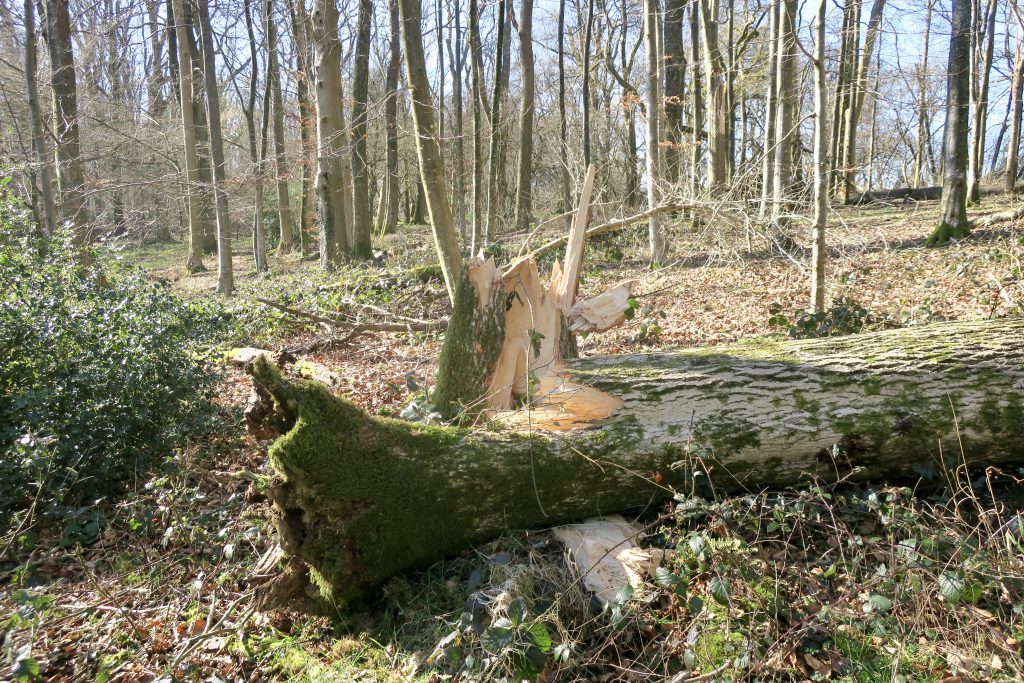
Storm Eunice had been busy. And I realised I’d only ever seen a dead badger, almost always it was roadkill on the edge of the motorway. Howard said he’d seen them dancing in his headlights as he parked his car at home.
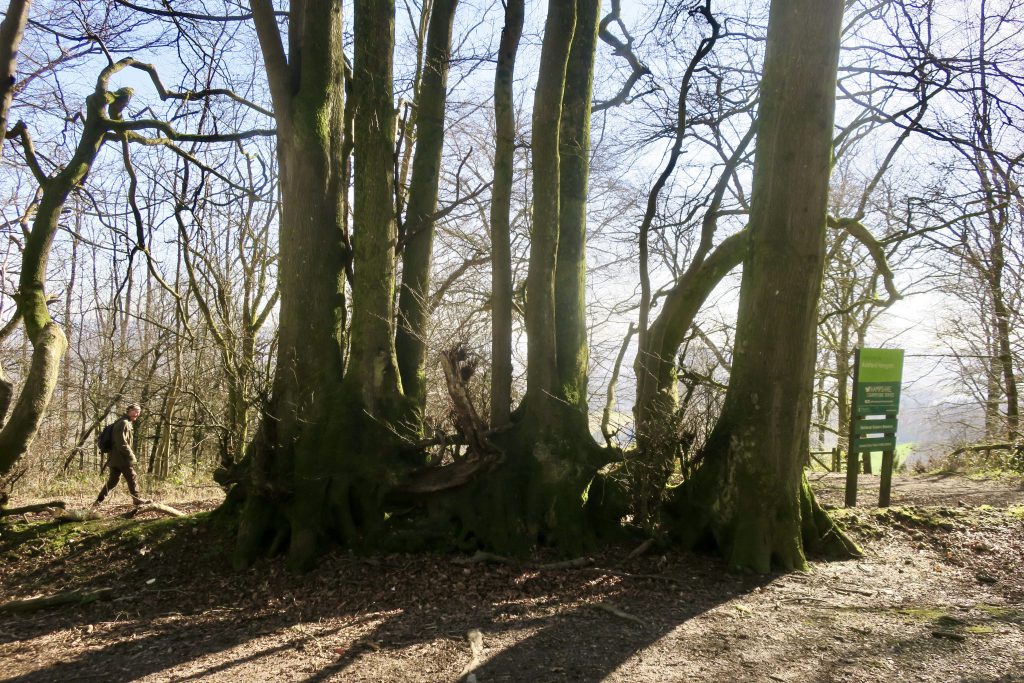
We crossed Old Litten Lane, where motorcycles scrambled noisily to and fro, then into the quiet shelter of Ashford Hangers National Nature Reserve.
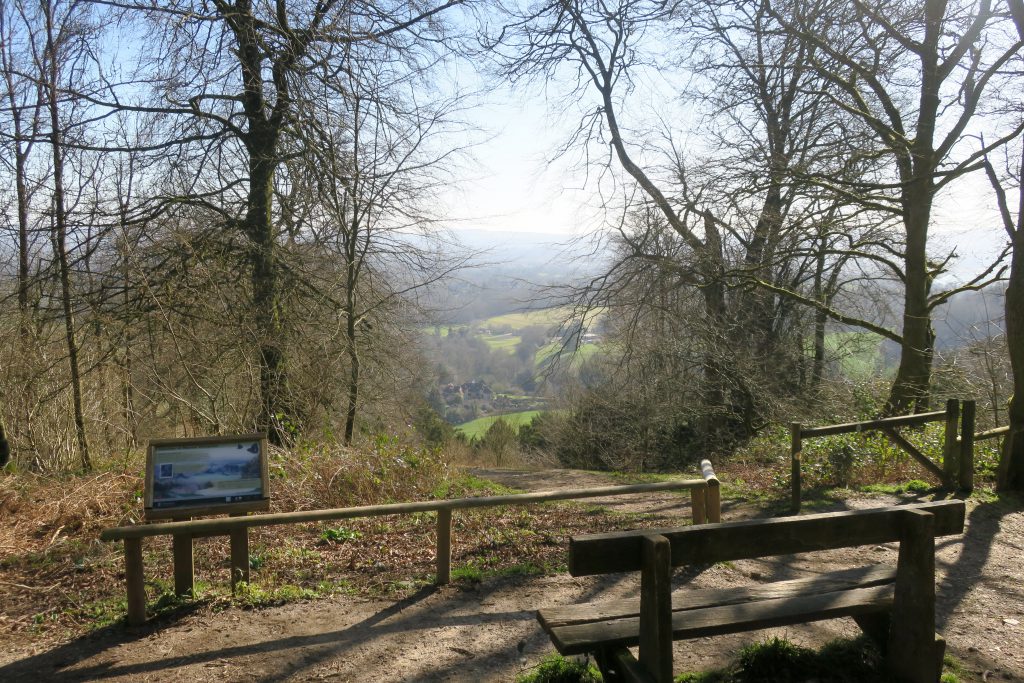
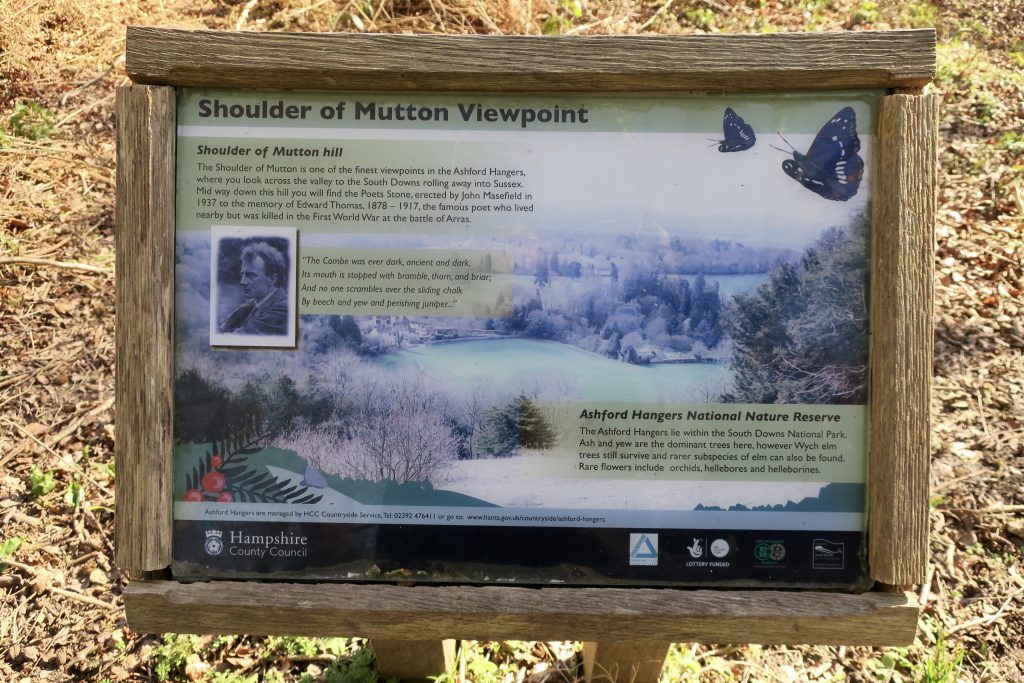
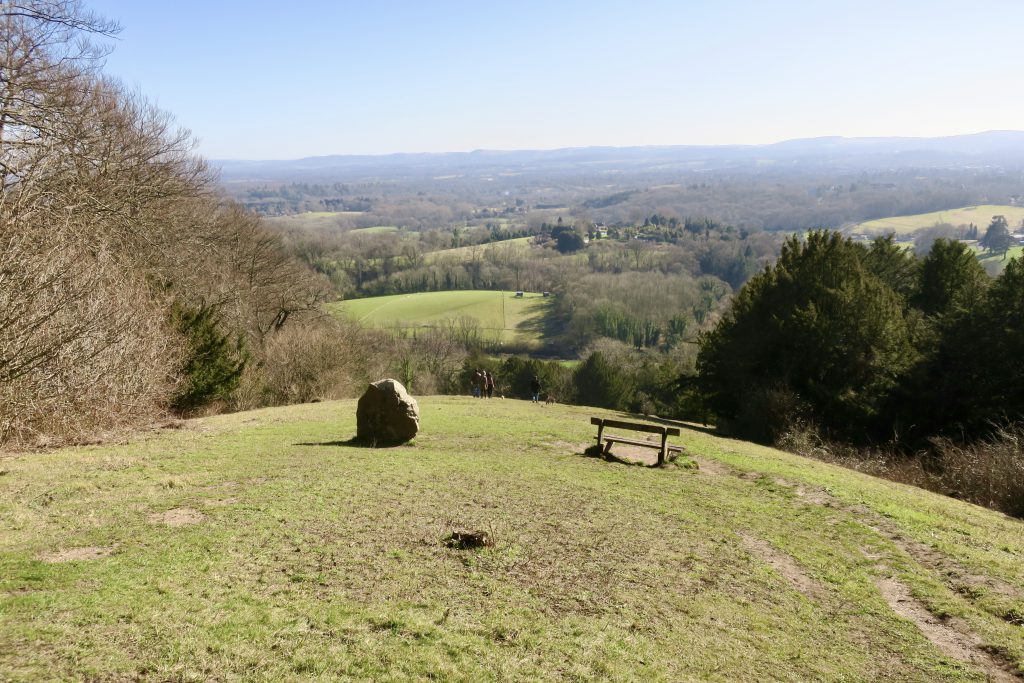
We descended Shoulder of Mutton Hill to sit a while and stare, to take in the poet’s favourite view, and to share a small picnic of walnuts and pie.
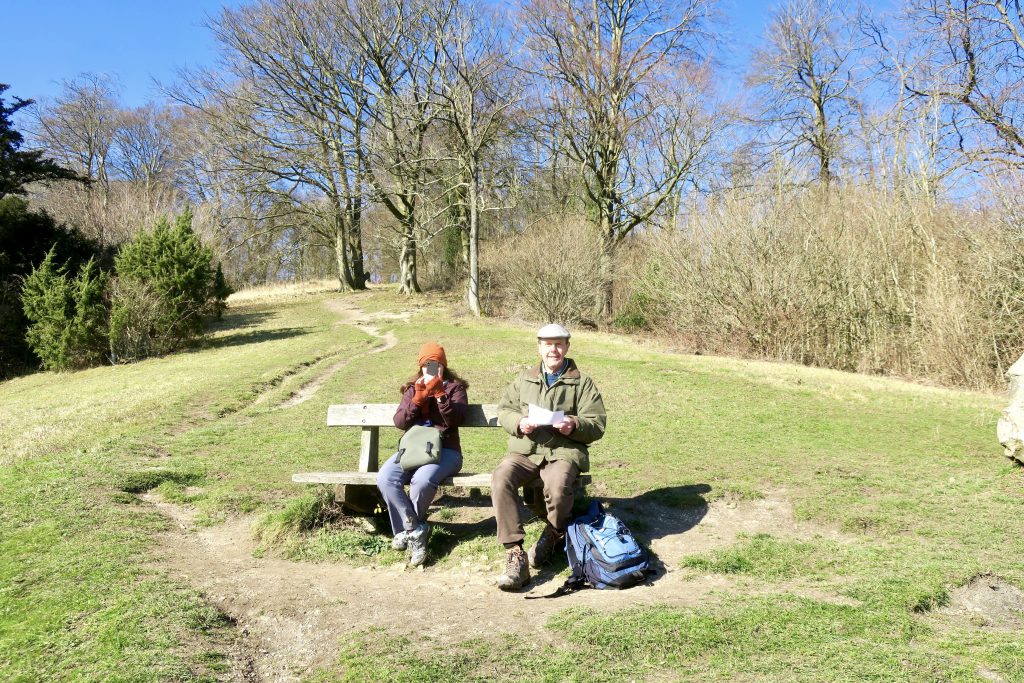
This hillside is dedicated to the memory of Edward Thomas.
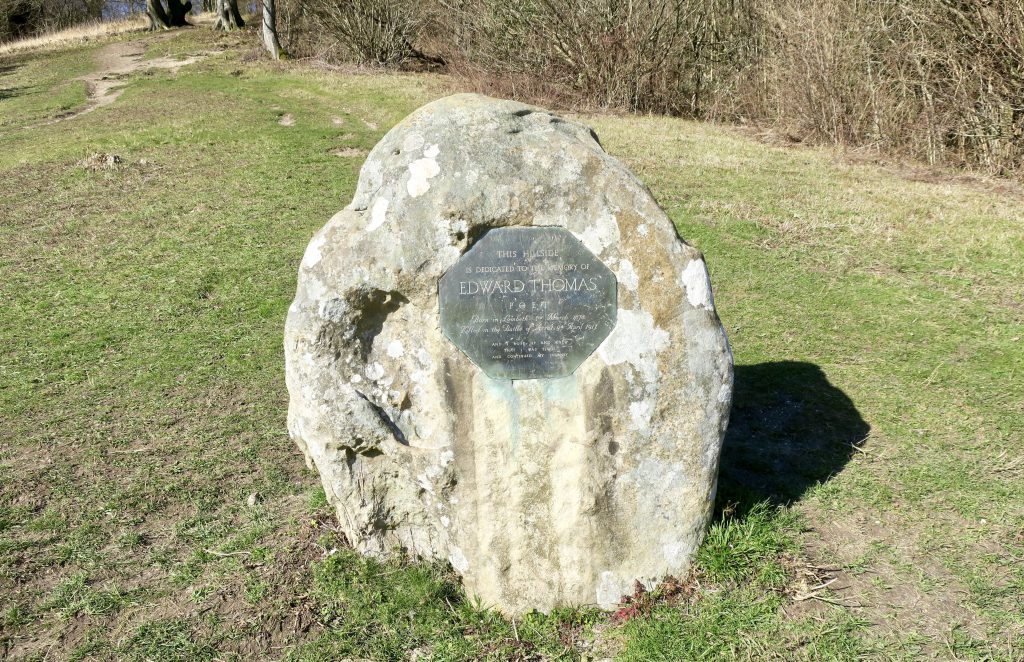
The Poet’s Stone
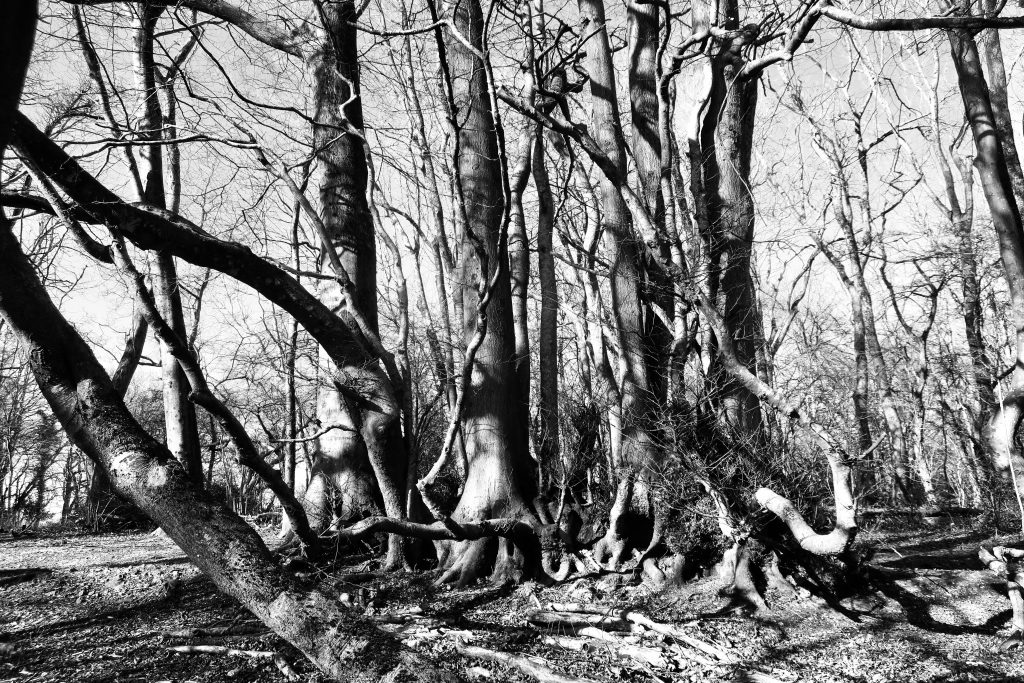
We retraced our steps back up the hill and I imagined this place at night, in black and white, in the other half of the day when humans are asleep, what goes here? A dream of nocturnal creatures when the owl flies and the fox is running and the badger comes alive again.
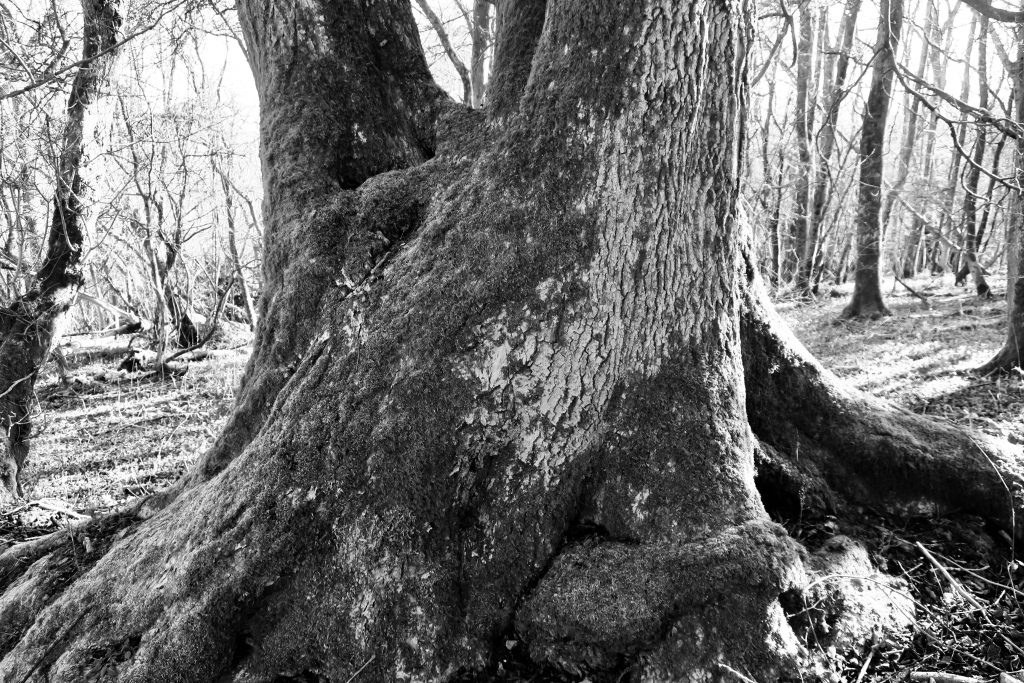
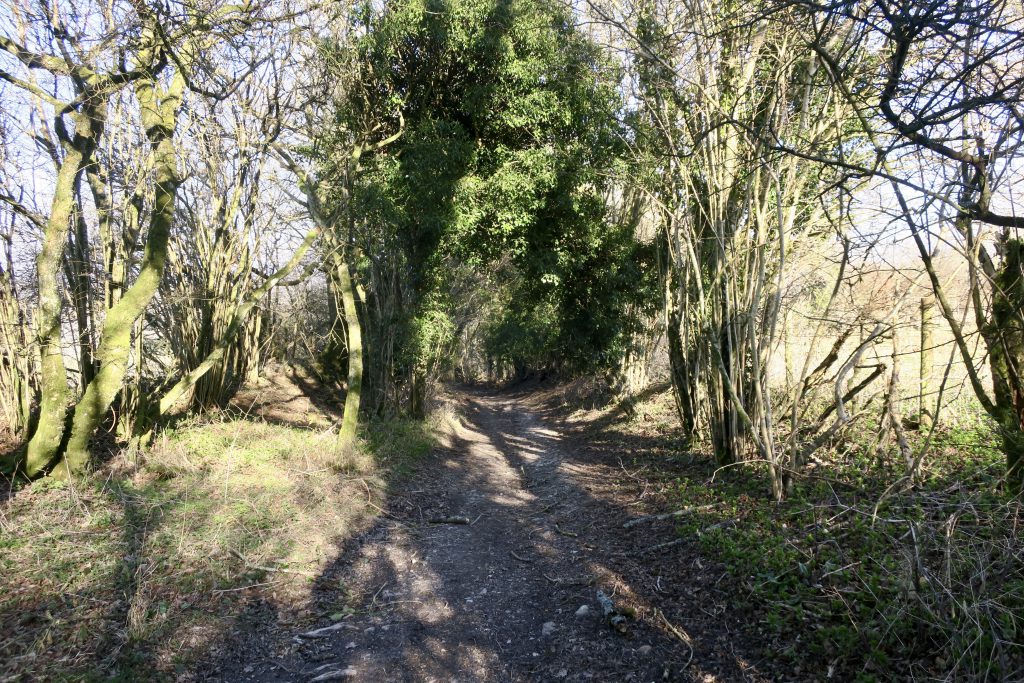
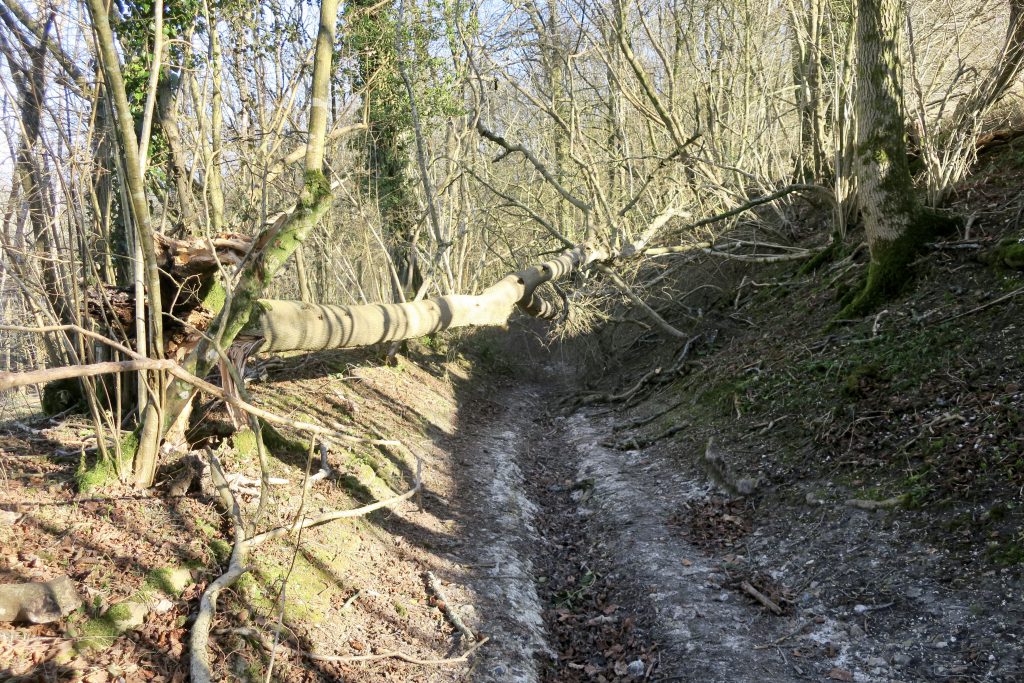
We followed an unnamed holloway down beneath bright and shadowed woods to where a broken ash tree lay freshly fallen across the path, a bridge above our heads, another victim of Friday’s storm.
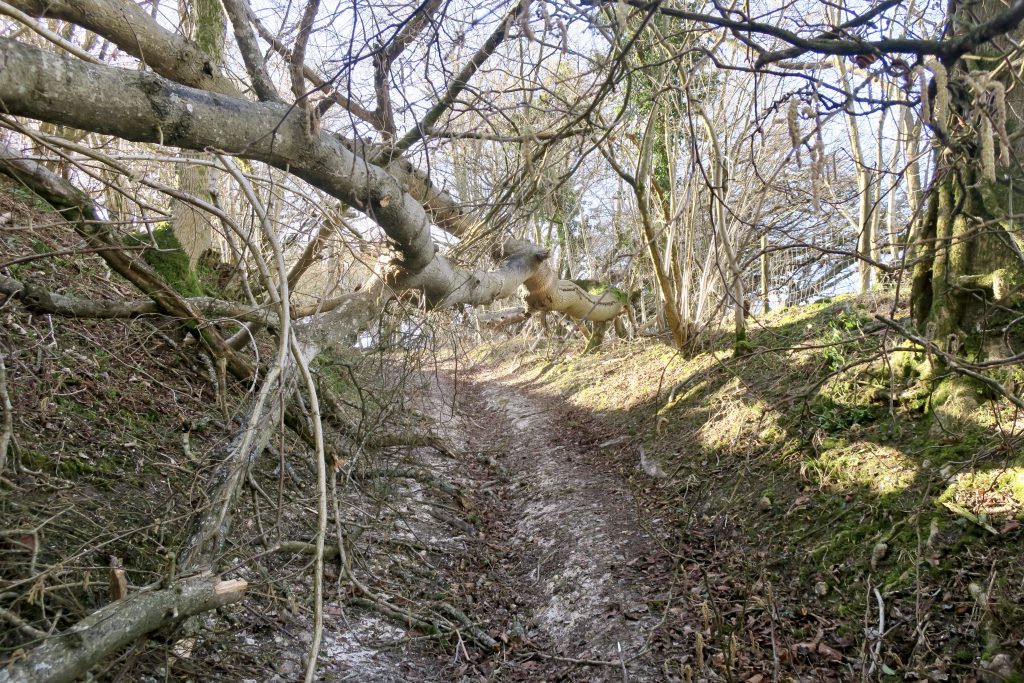
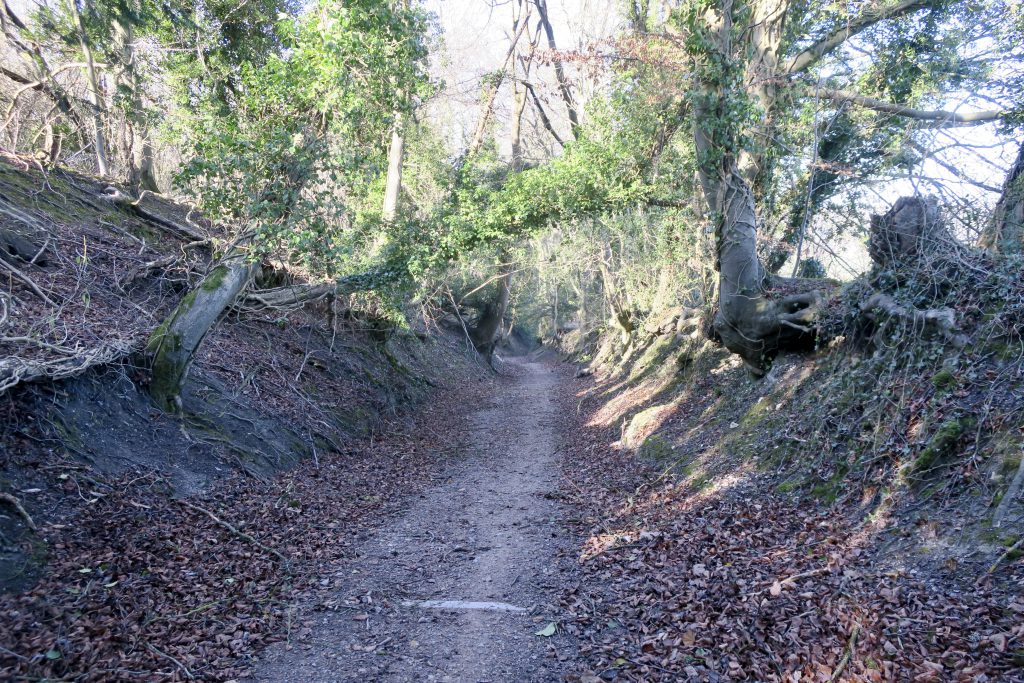
We were submerged, sinking ever deeper,
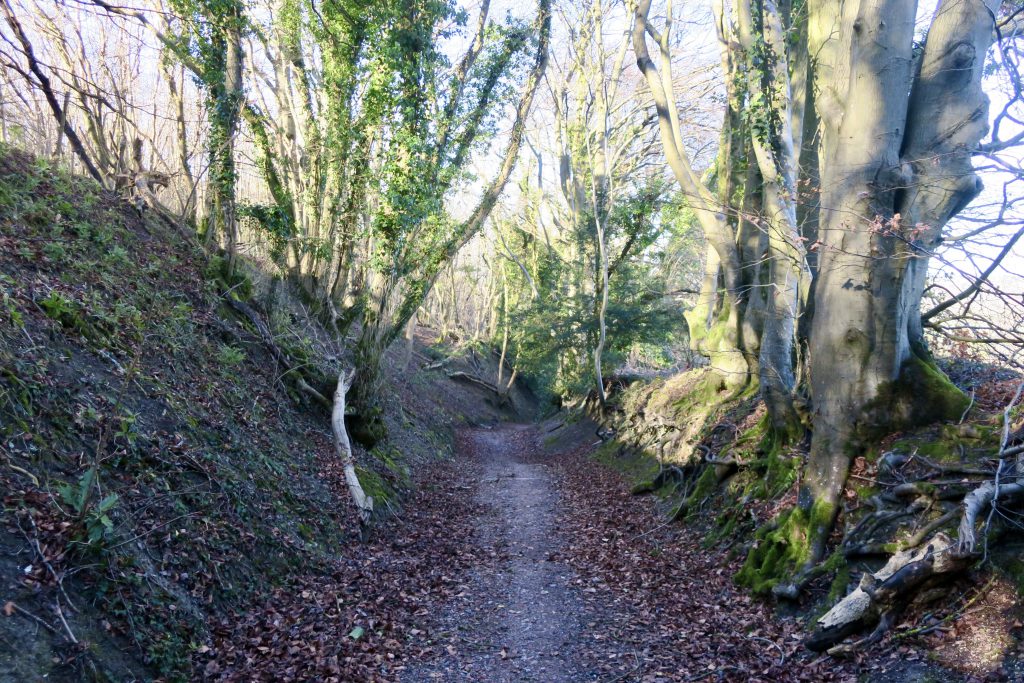
less animal, more vegetable, more mineral.
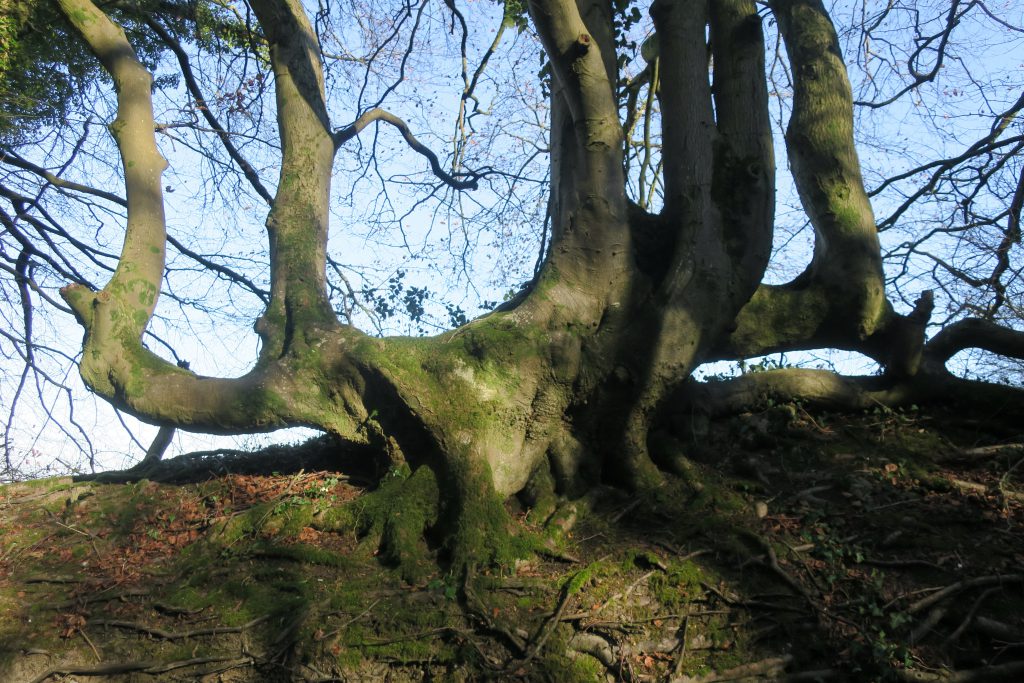
A wayside candelabra cadabra.
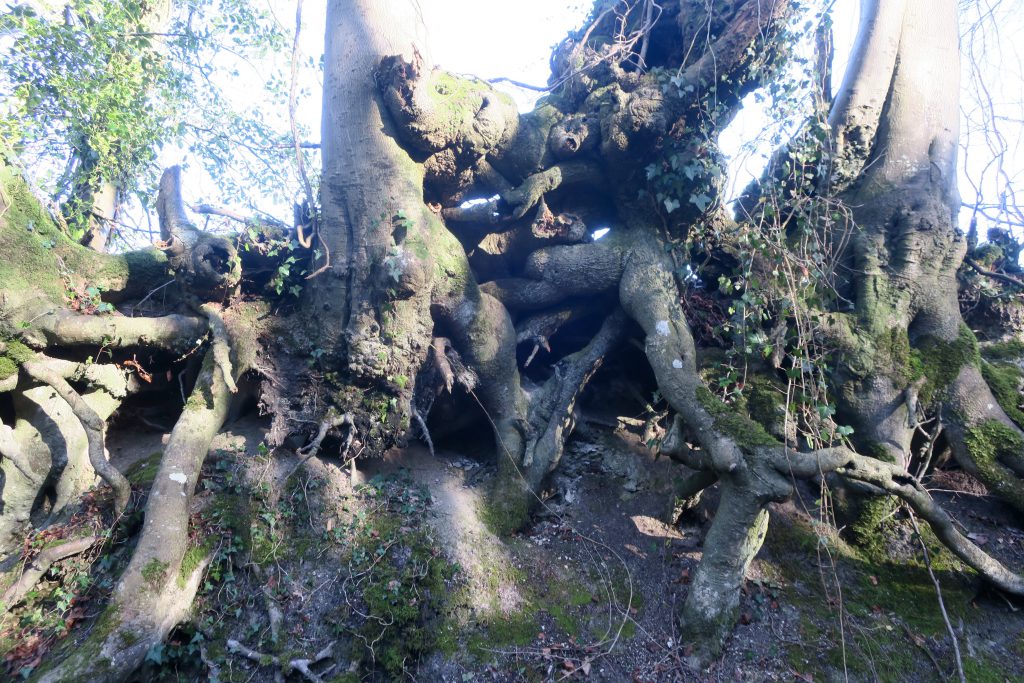
We’re down under the roots, all tangled and tied, holloways inbetween where little creatures hide. If we ever need a place, this is where we’ll abide.
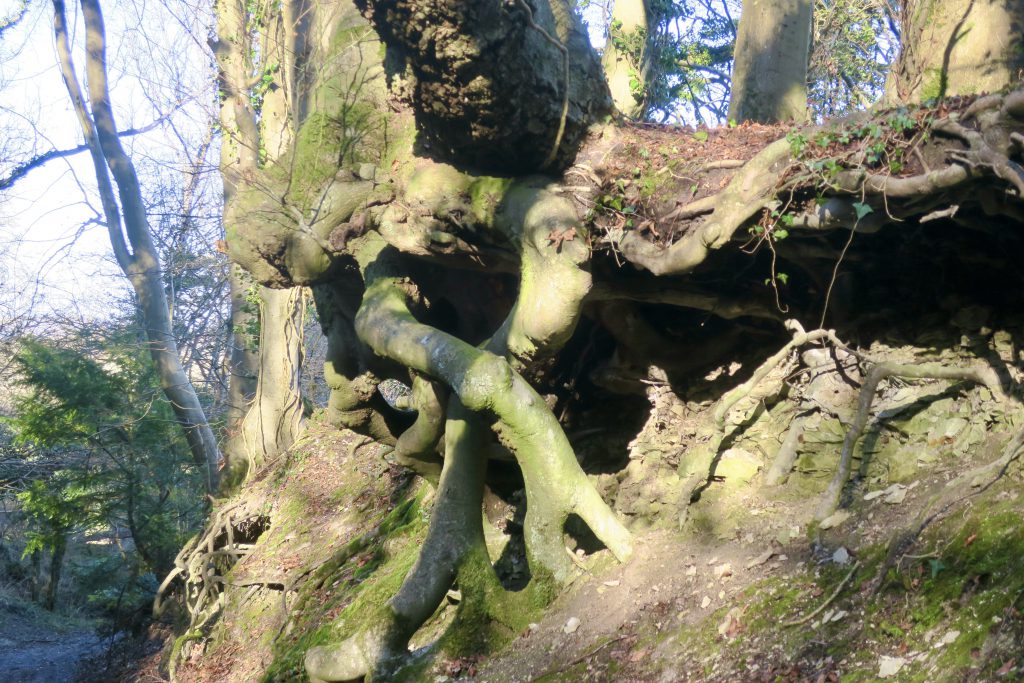
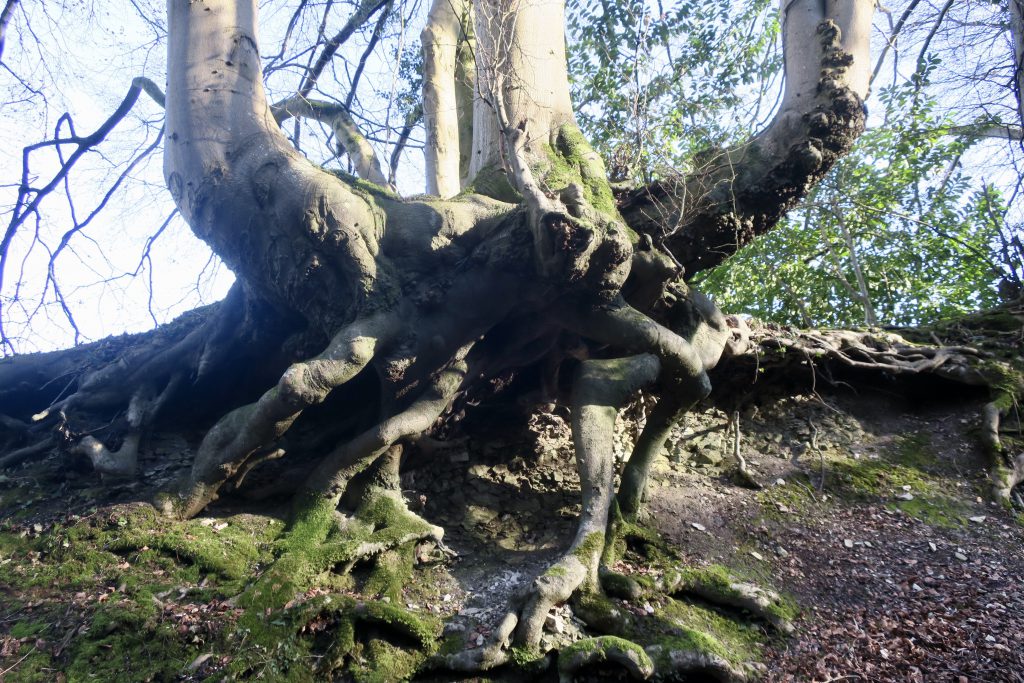
Then a sudden huge cantilevered beech, an ancient multi-stemmed coppice overhanging the bank on high-stepping criss-crossed legs, an octopus tree with a toby jug gargoyle face on its elbow, climbing down to say hello.
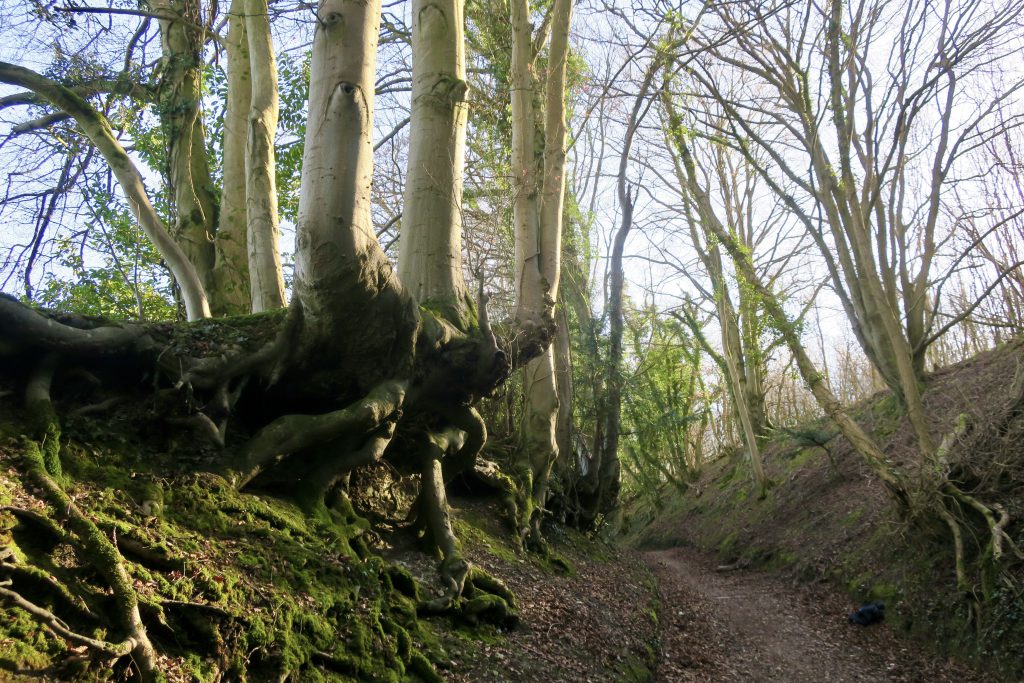
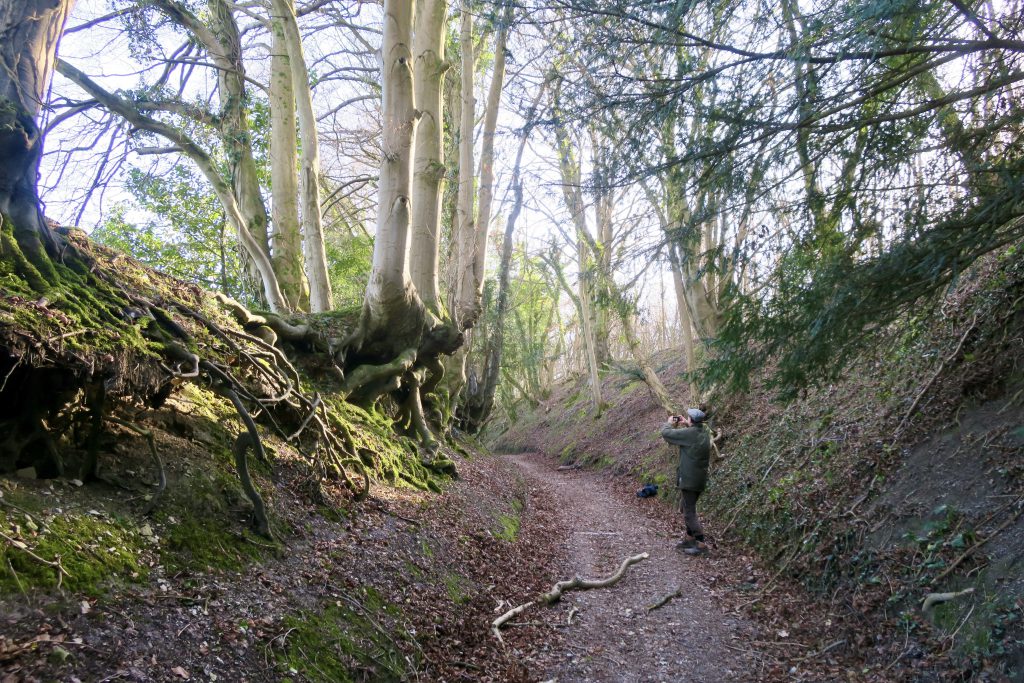
Howard joined the dance and said hello too.
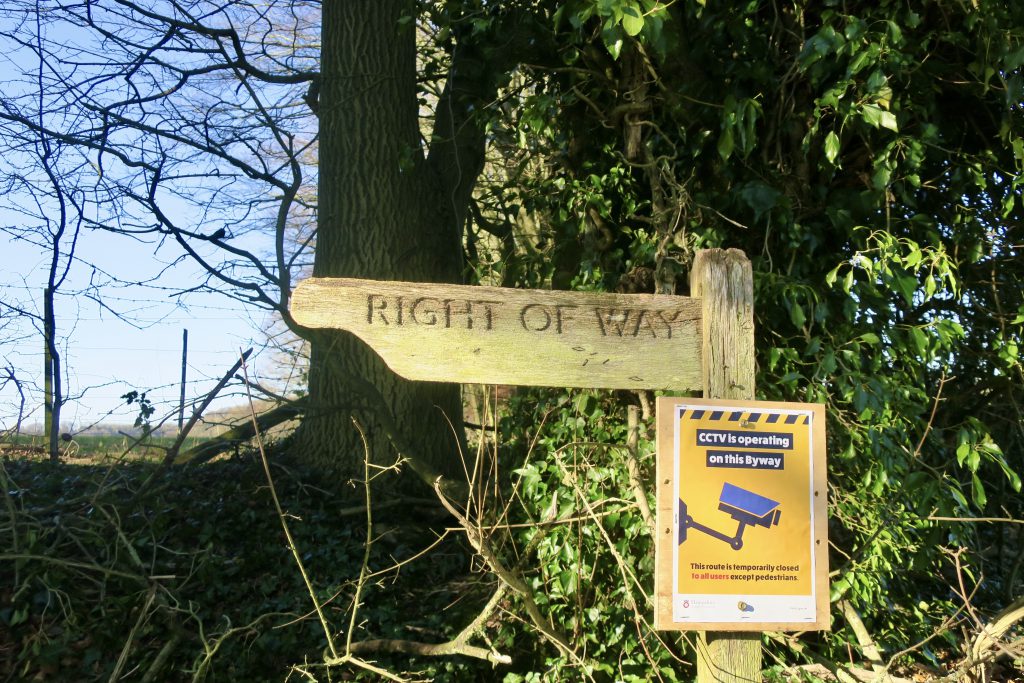
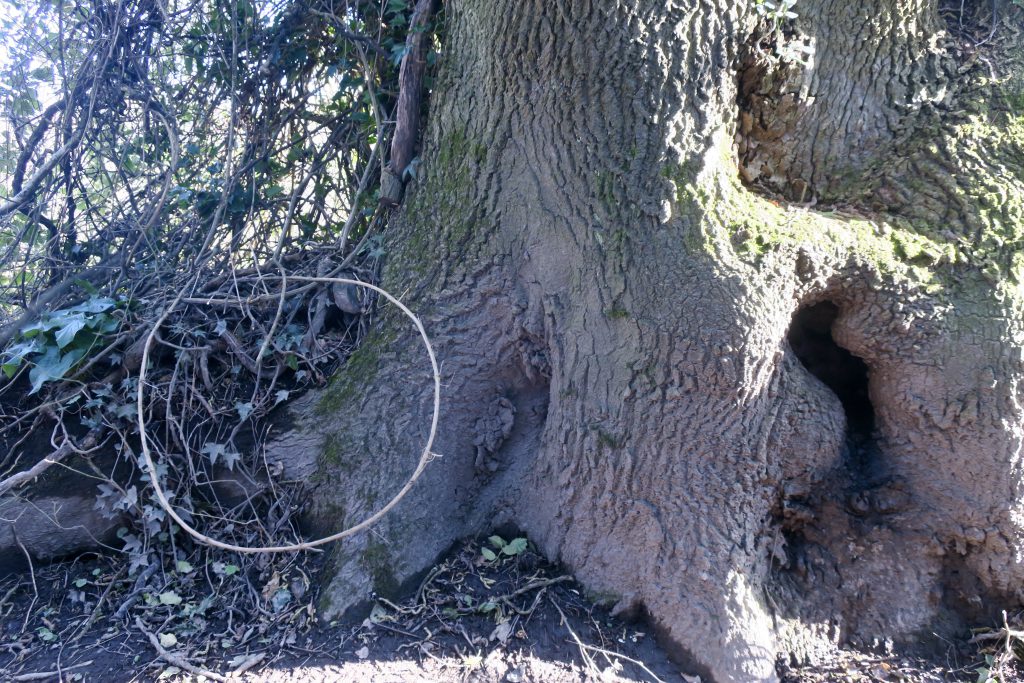
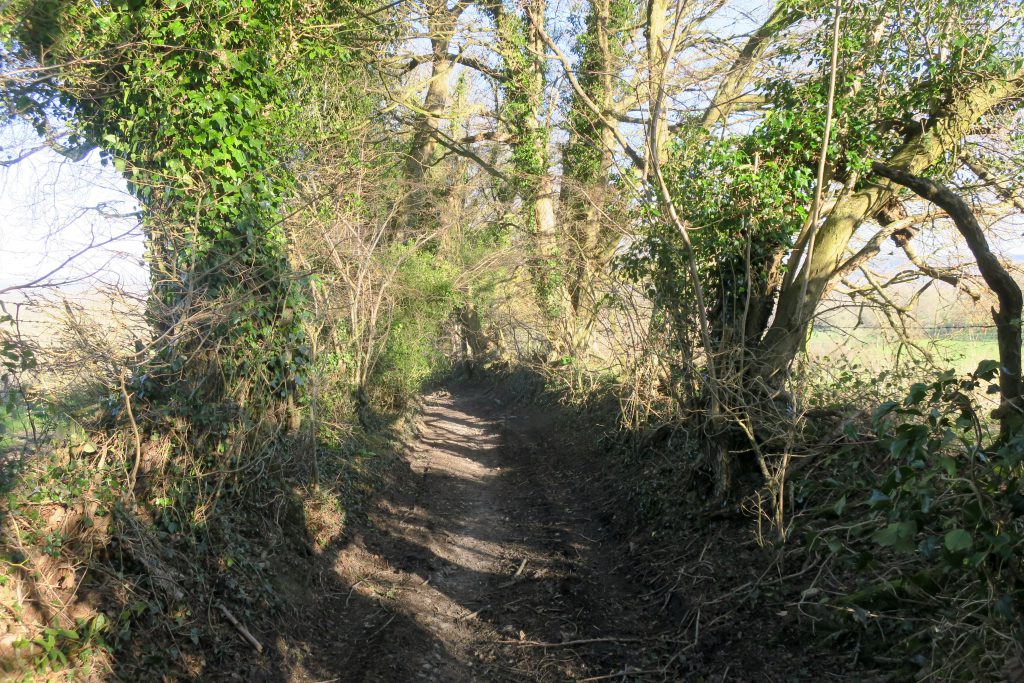
Another holloway but we went the other way. We’ll be back another day.
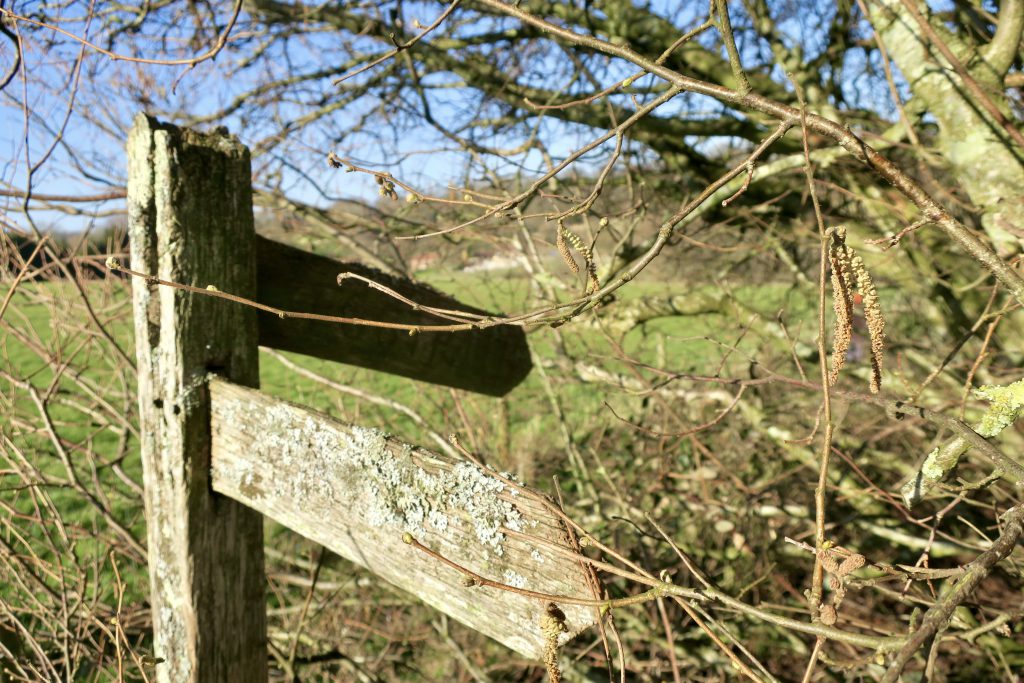
But for now it’s this way and that way and this way and that…
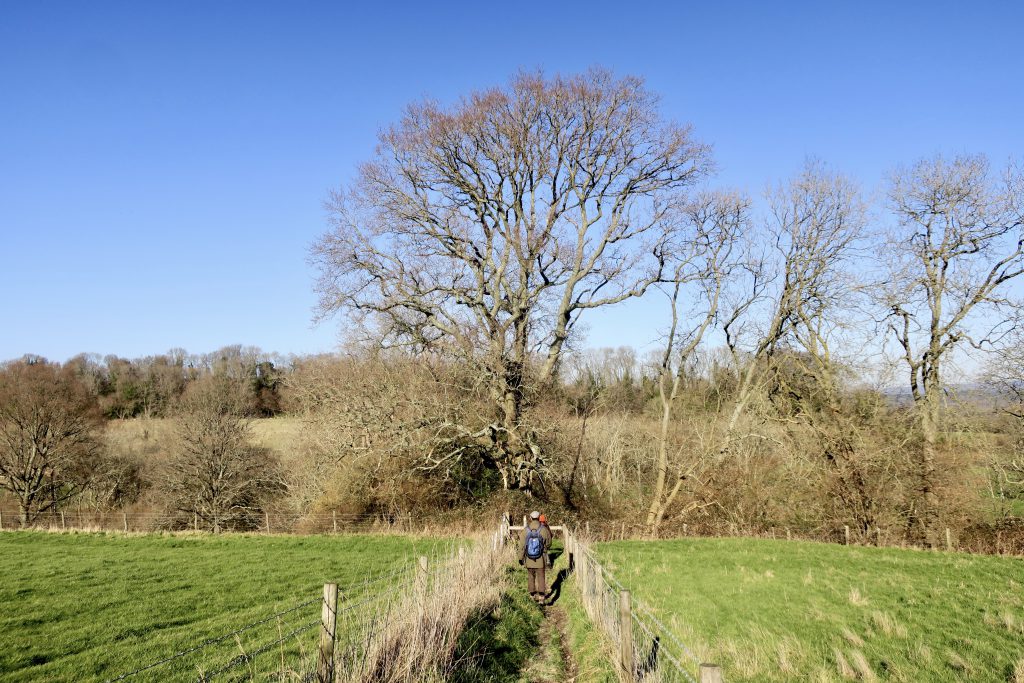
It’s o’er the fields and over, tho’ next time we’ll go under…
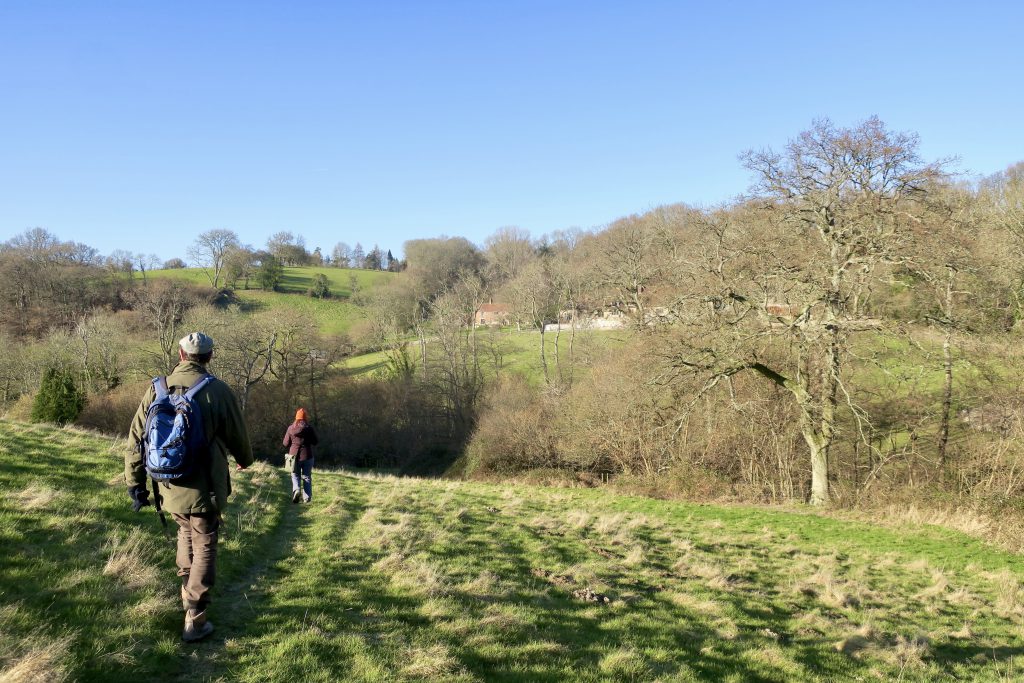
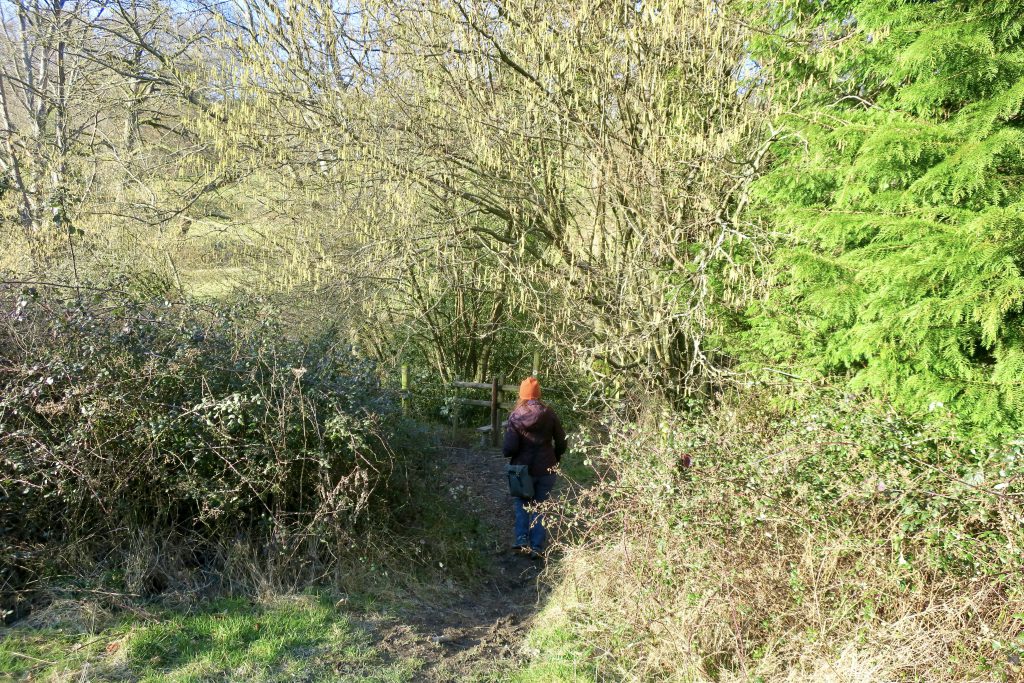
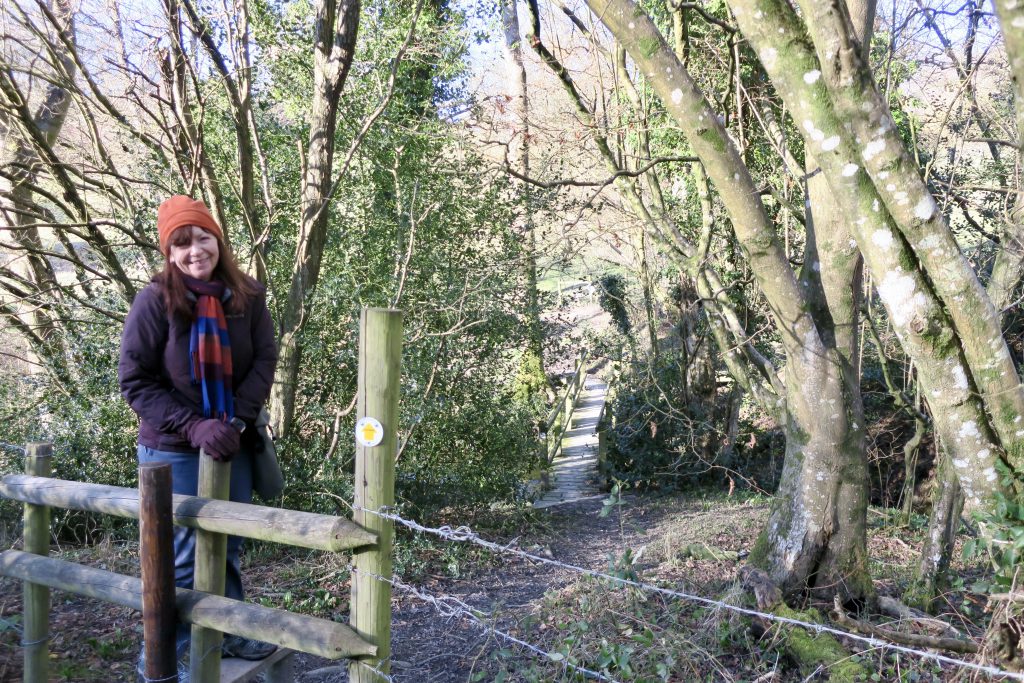
But don’t it always seem to go
That you don’t know what you’ve got ’til it’s gone
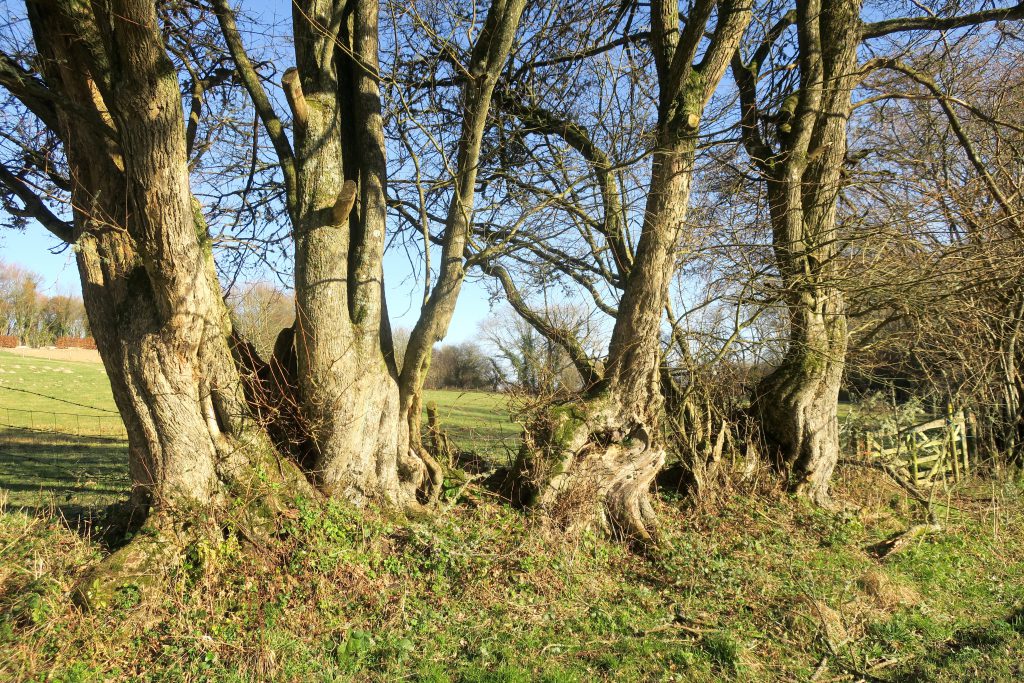
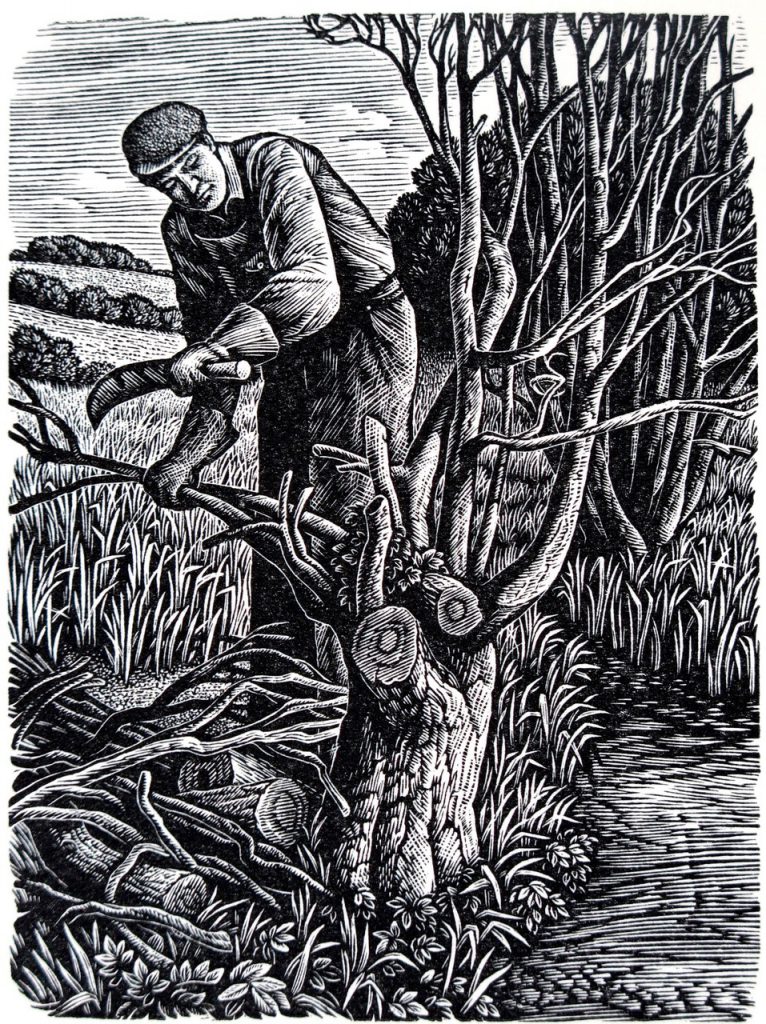
First known when lost
I never had noticed it until
‘Twas gone, – the narrow copse
Where now the woodman lops
The last of the willows with his bill.
It was not more than a hedge o’ergrown.
One meadow’s breadth away
I passed it day by day.
Now the soil is bare as a bone,
And black betwixt two meadows green,
Though fresh-cut faggot ends
Of hazel make some amends
With a gleam as if flowers they had been.
Strange it could have hidden so near!
And now I see as I look
That the small winding brook,
A tributary’s tributary rises here.
Edward Thomas 1915
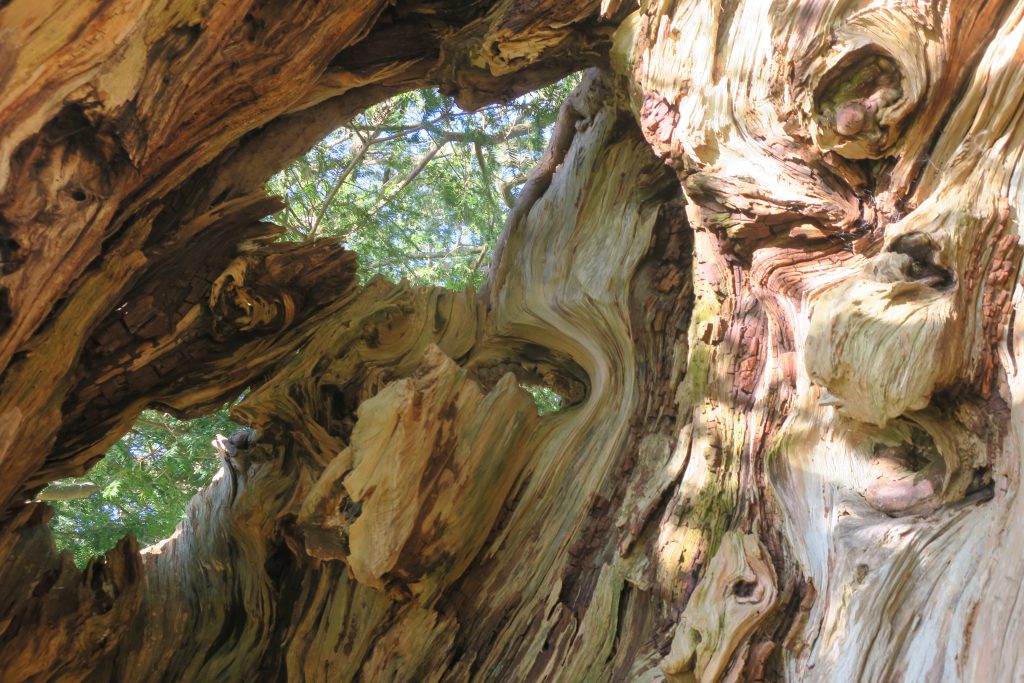
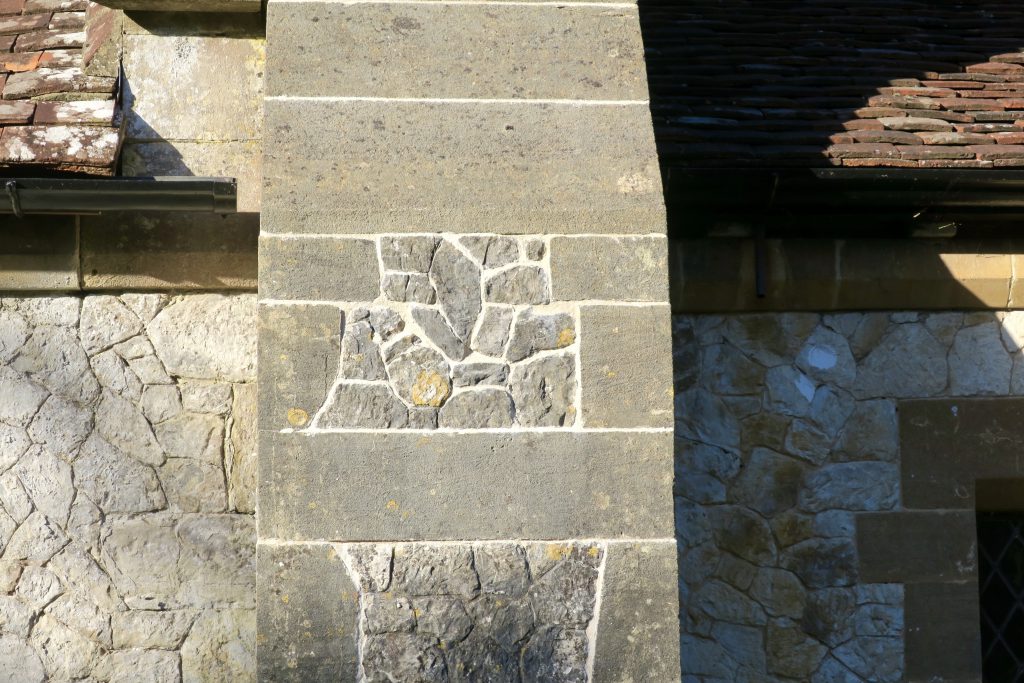
Before long we were back at the beginning in Hawkley churchyard, with its hollow yews and the writing on the wall. For a moment the mortar between the stones shone brightly like an illuminated inscription. A sign perhaps. Time to retire to the pub before loading our precious cargo.
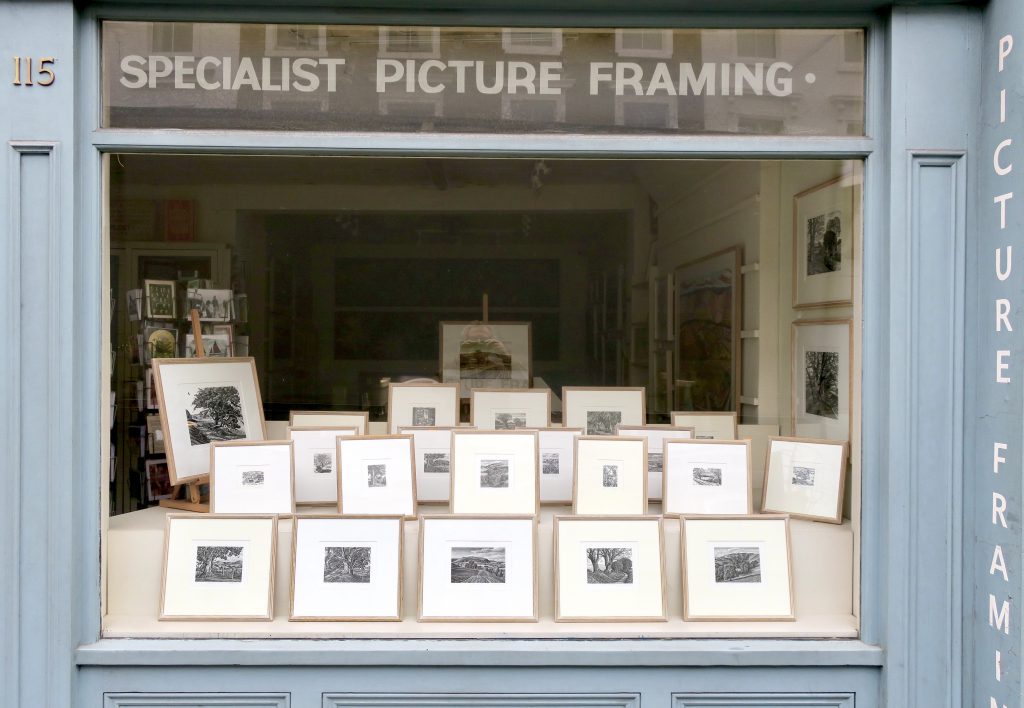
A windowful of wonderful
A March Window
※
